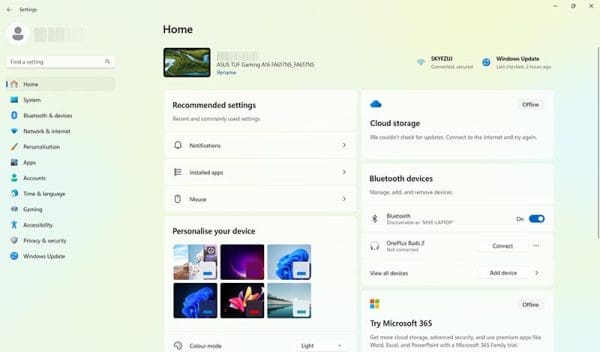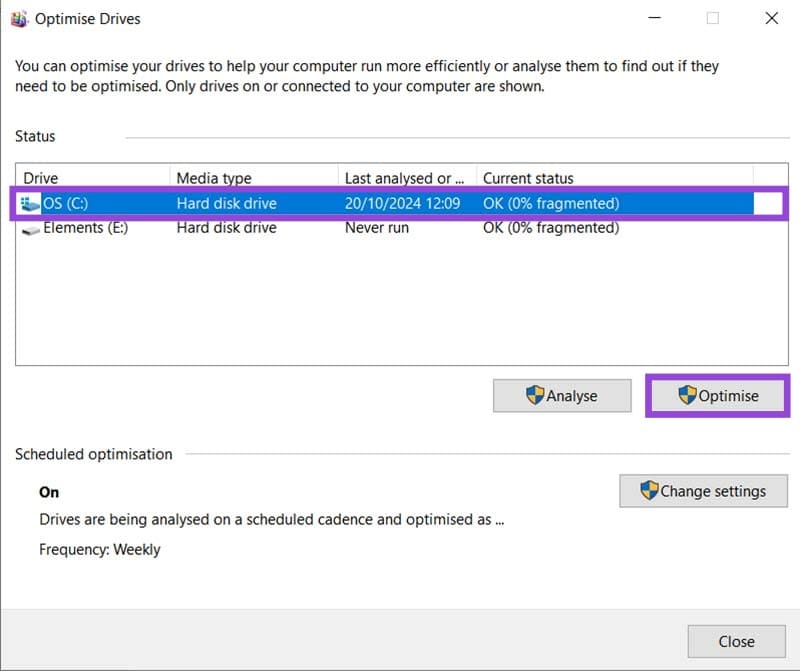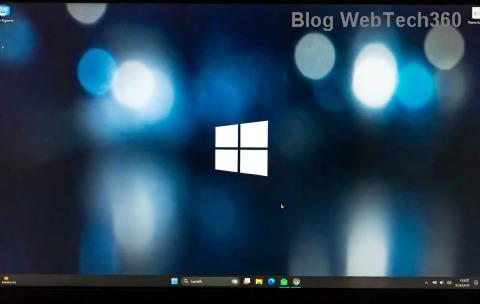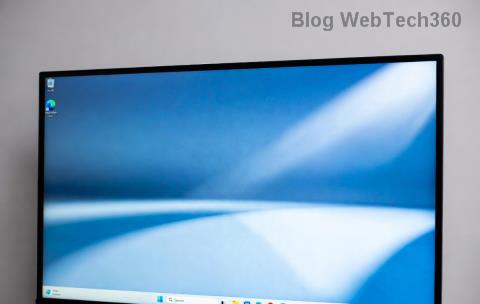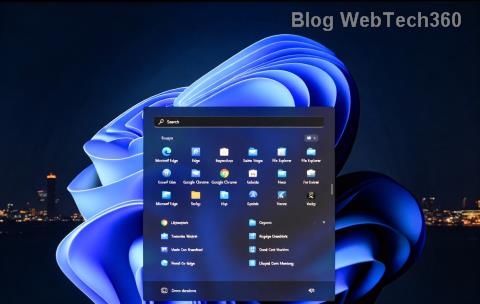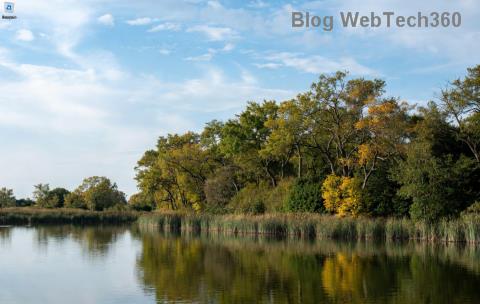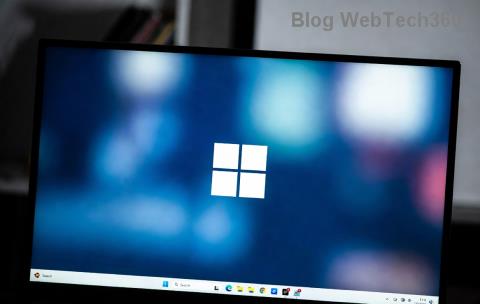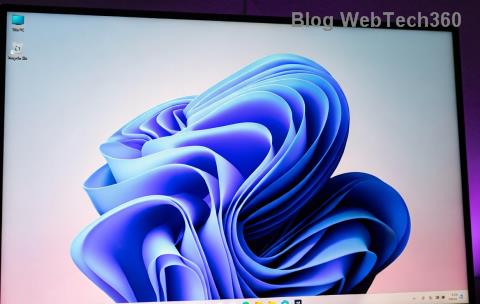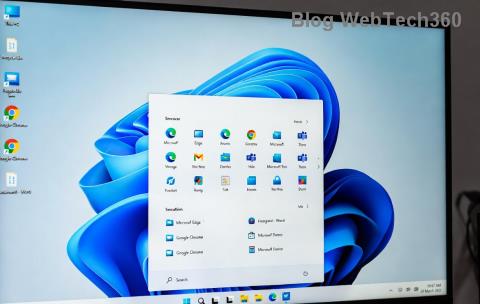Sådan genvinder du adgang til harddisken, retter fejlen om ikke at kunne åbne harddisken
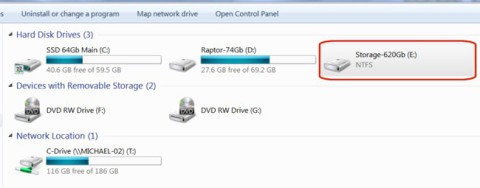
I denne artikel vil vi guide dig til, hvordan du genvinder adgang til din harddisk, når den fejler. Lad os følge med!
Hvis du opgraderer til en ny pc, forsøger du muligvis at genbruge harddisken fra din gamle pc. Hvis ikke, planlægger du måske at give den til et familiemedlem eller en ven. Men før du fortsætter med nogen af disse muligheder, bør du tørre din gamle harddisk fuldstændigt, så den næste person starter frisk med harddisken.
I dette indlæg vil vi dække flere måder at slette en harddisk på i Windows 11 .
Indhold
Hvorfor skal du tørre en harddisk?
Før vi hopper til metoderne, lad os tage et minut til at forstå, hvorfor du skal tørre dine harddiske.
Den mere åbenlyse årsag til at tørre en harddisk er at tømme alle dine personlige filer og applikationer fra drevet, og sikre dig, at de ikke kan gendannes med datagendannelsesværktøjer - efter en fabriksnulstilling eller ej. En anden grund til at slette drevet kunne være simpelthen at få mere lagerplads til dine nye filer. Eller måske vil du bare sætte din pc op fra bunden med en ren installation af Windows og friske partitioner til din harddisk.
Uanset årsagen, lad os tage et kig på forudsætningerne for at tørre din harddisk.
Hvad skal man gøre, før man tørrer en harddisk?
Før du tørrer dit drev, er der et par ting, du skal passe på.
Lad os tage et kig på metoderne til at slette en harddisk i Windows 11.
Relateret: Sådan kortlægges et drev i Windows 11
Sådan formateres et drev på Windows 11 eller 10
Du kan formatere et drev på flere måder afhængigt af den type adgang, du har til dit system. Brug en af nedenstående guider, der passer bedst til din aktuelle situation og dine behov.
Dette er uden tvivl en af de enkleste og hurtigste måder at tørre en harddisk på. Processen tager kun et par sekunder og er perfekt, når du vil gøre plads til nye filer på din harddisk.
Bemærk: Denne metode virker kun for sekundære drev på dit system og ikke dit bootdrev.
Her er trinene.
Tryk på for Win key + rat åbne boksen Kør. Indtast 'explorer' og tryk enter.
Du vil se et vindue med titlen 'File Explorer' åbne op. Klik på 'Denne pc'.
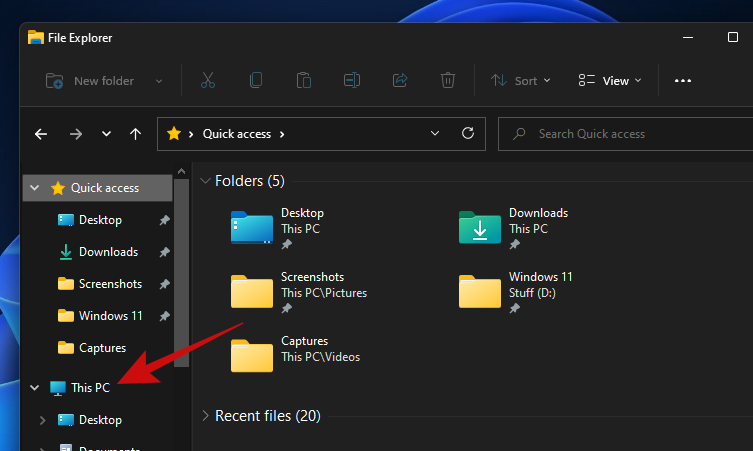
Du bør nu se alle de drev, der er tilsluttet din pc. Vores har tre drev, hvoraf vi vil bruge 'Data'-drevet til denne vejledning.
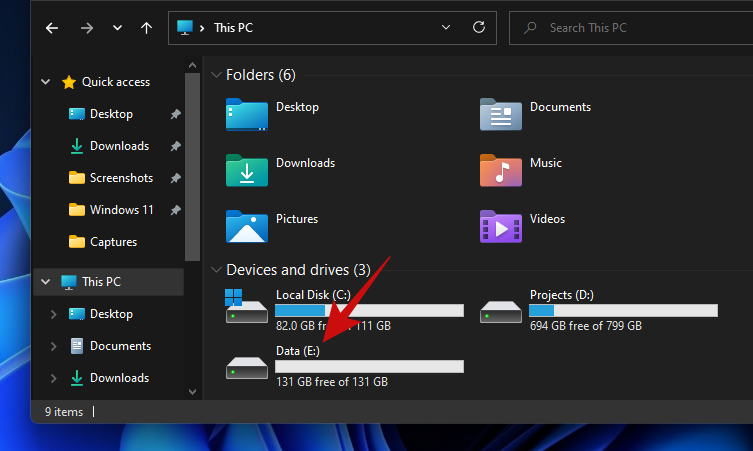
Alt du skal gøre er at højreklikke på det drev, du vil slette, og klik på 'Formater'.
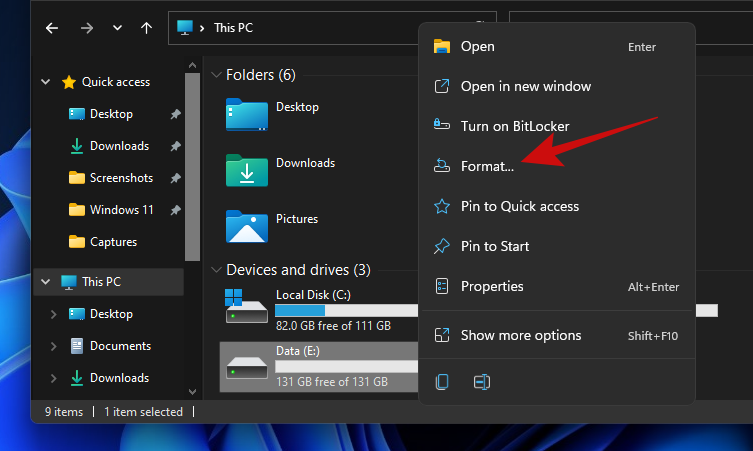
Du bør se en lille 'Format' popup åben med en masse muligheder. Hvis du vil foretage en hurtig datasletning uden at rode med andre muligheder, skal du klikke på 'Start'-knappen.
Tip: For en mere sikker datasletning skal du fjerne markeringen i 'Hurtig formatering' og derefter klikke på 'Start'. Husk, at en grundig aftørring vil tage meget længere tid end en hurtig formatering.
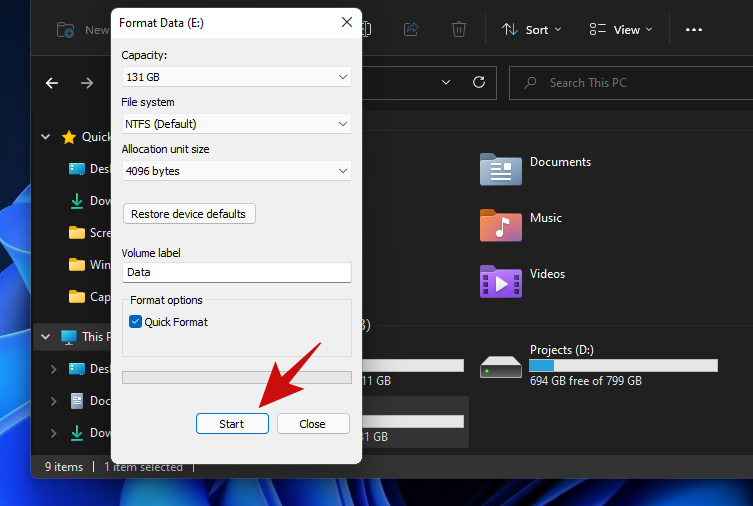
Når sletningen er fuldført, bør du se en meddelelse, der bekræfter det samme. Klik på 'OK' for at afvise advarslen.
Dit drev er nu helt rent og klar til at blive brugt igen.
Metode #2: Brug af diskhåndtering
Åbn menuen Start og skriv 'Diskhåndtering'. Klik på søgeresultatet eller åben-knappen.
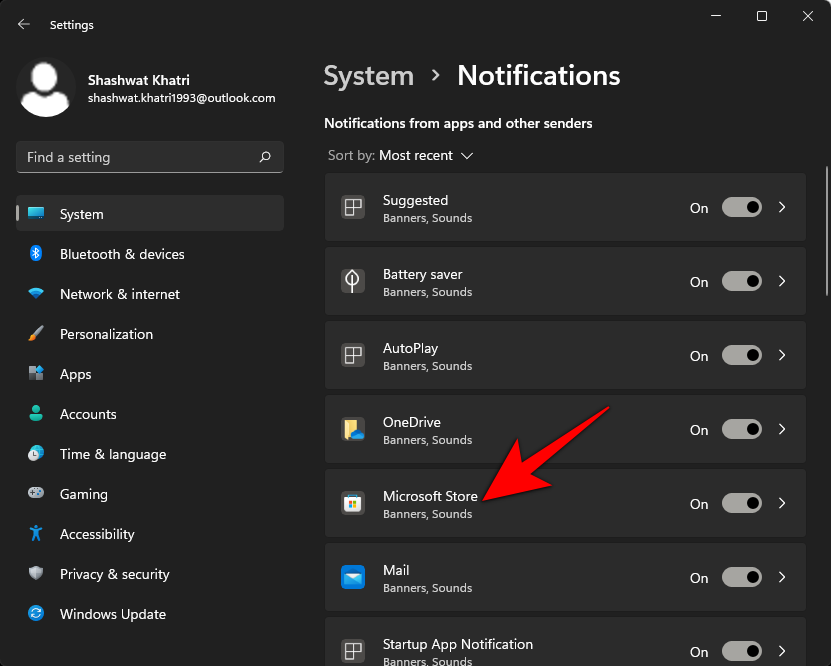
Sådan ser Disk Management-værktøjet ud.
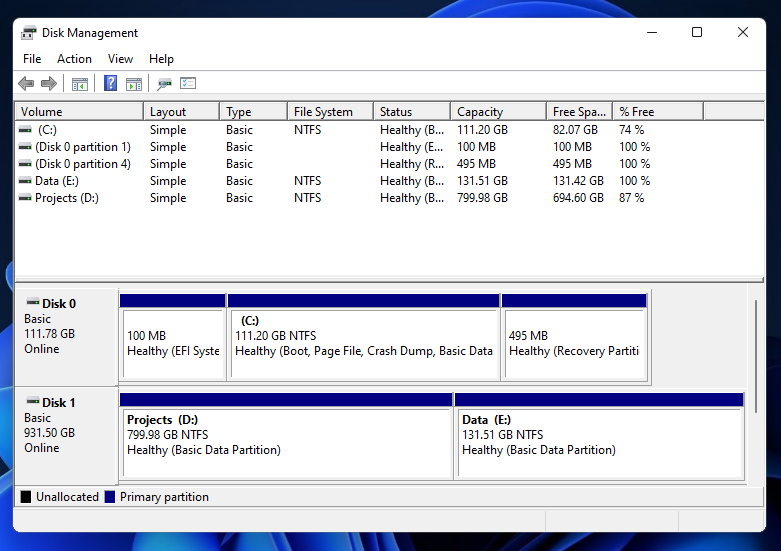
Højreklik på den lydstyrke, du vil slette, og klik på Formater.
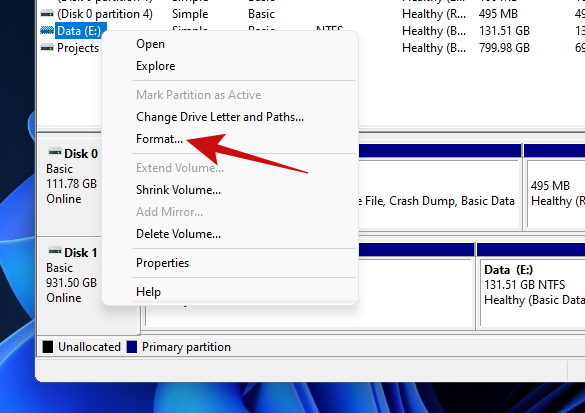
På den næste popup bør du have en håndfuld muligheder som at ændre navnet på volumen, filsystemerne og mere.
Igen, ligesom den forrige metode, bør du holde indstillingen 'Udfør et hurtigt formatering' afkrydset, hvis du ikke vil vente i lang tid med at slette dit drev.
Tip: For en grundig sletning, der skulle fjerne alle spor af dine data fra dit drev, skal du fjerne markeringen i 'Udfør en hurtig formatering'.
Klik på knappen 'OK' for at begynde at tørre dit drev.
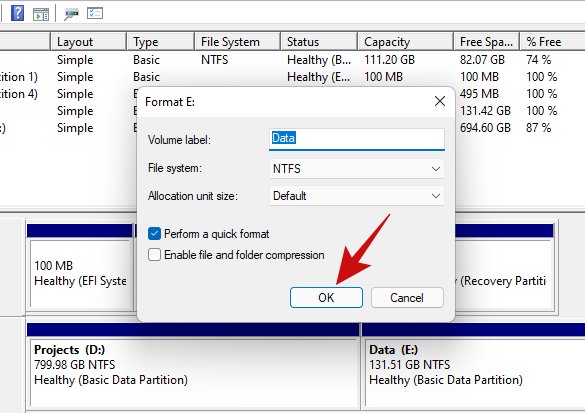
Klik på knappen 'OK' for at bekræfte datasletningen, og dit drev skulle være rent inden for få minutter.
Metode #3: Brug af Diskpart i CMD (kommandoprompt)
Diskpart er et kommandolinjeværktøj, der kan bruges til at styre alle de drev, der er tilsluttet din pc. Du kan gøre alt fra at liste diskene, oprette og slette partitioner og meget mere med diskpart.
Lad os tage et kig på, hvordan du kan slette din harddisk med diskpart.
Tryk på for Win key + rat åbne boksen Kør. Indtast 'cmd' og tryk på Ctrl + Shift + Entertasterne i stedet for kun på enter-tasten. Dette åbner en forhøjet kommandoprompt.
Standardstien fra en forhøjet kommandoprompt skal se sådan ud.
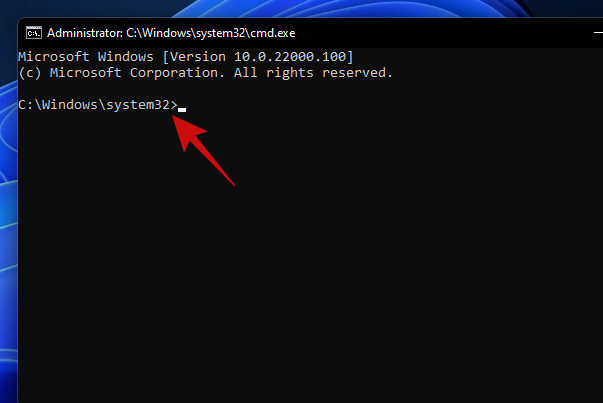
Indtast 'diskpart' og tryk enter. Du skulle nu være i diskpart-værktøjet.
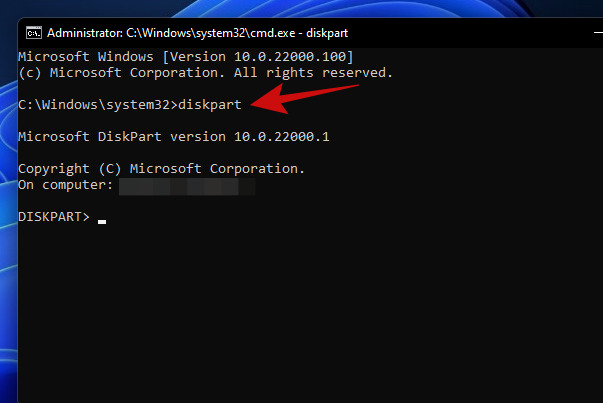
Skriv 'list disk' og tryk enter. Dette bør vise alle de diske, der er tilsluttet din pc.
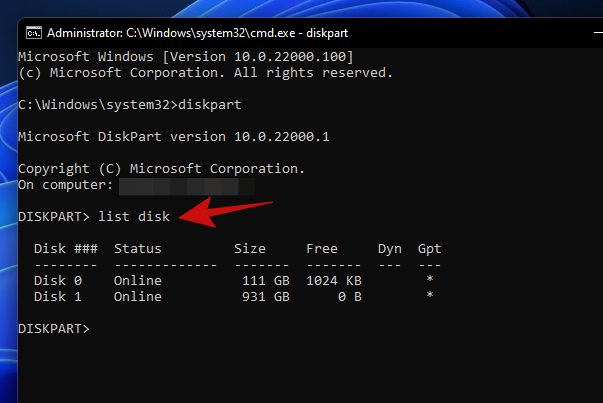
For at fortsætte med disksletningen skal du indtaste 'vælg disk'. Vores bærbare computer har to harddiske, og til denne vejledning fortsætter vi med Disk 1, så vi indtastede 'vælg disk 1' og trykkede på Enter.
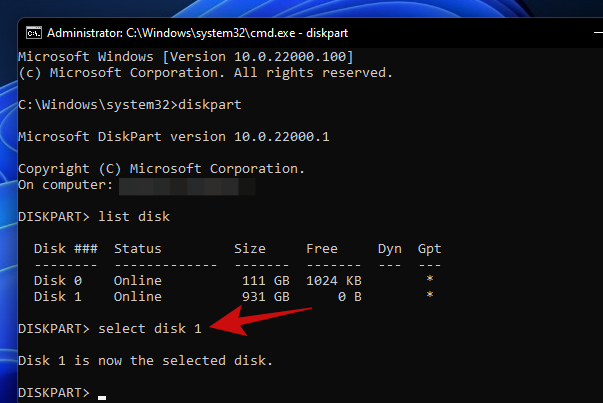
Indtast 'ren' og tryk enter.
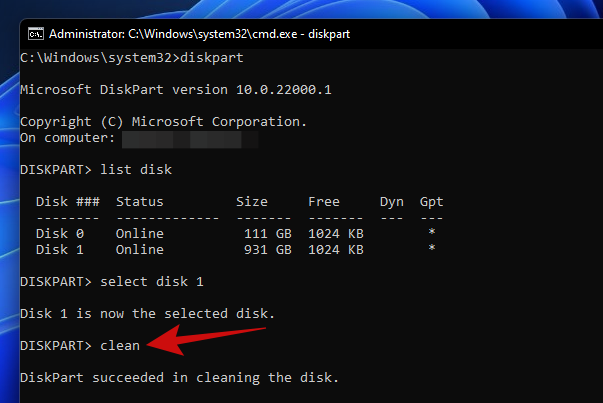
Din disk skulle nu være helt tom og omdannet til ikke-allokeret plads. Din næste opgave bør være at oprette partitioner ved hjælp af Disk Management-værktøjet, vi brugte tidligere. Kør blot værktøjet og initialiser disken. Derefter bør du være i stand til at oprette partitioner af enhver størrelse, der passer dig bedst.
Metode #4: Brug af nulstillingsindstillingen
Windows 11 kommer med en mulighed kaldet 'Nulstil denne pc', som nulstiller Windows til fabriksindstillingerne. Og det bedste ved Nulstil denne pc er, at det giver brugerne mulighed for enten at beholde alle deres filer og nulstille Windows eller fjerne alt, mens Windows nulstilles.
Hvis du tørrer dit drev blot for at geninstallere Windows, anbefaler vi, at du prøver denne metode, før du fortsætter med en ren installation.
Sådan kan du gøre det.
Åbn menuen Start, og skriv 'Nulstil denne pc'. Klik på søgeresultatet, der dukker op, eller klik på åben-knappen.
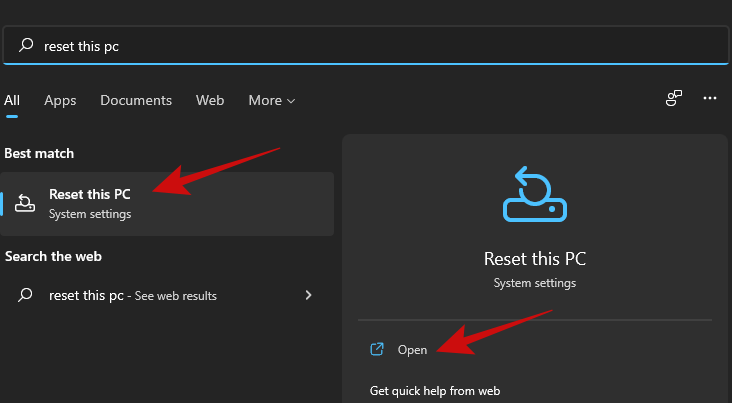
Klik på knappen 'Nulstil pc' for at udløse Windows-nulstillingsprocessen.
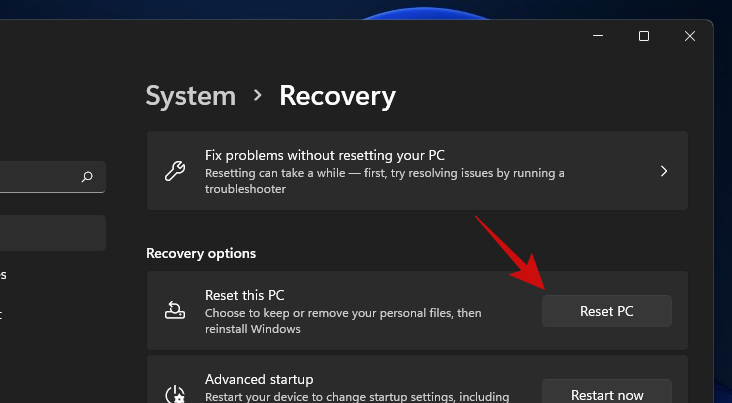
Du bør se en blå skærm med to muligheder. Klik på 'Fjern alt' for at geninstallere Windows, mens du fjerner alle dine filer, apps og indstillinger.
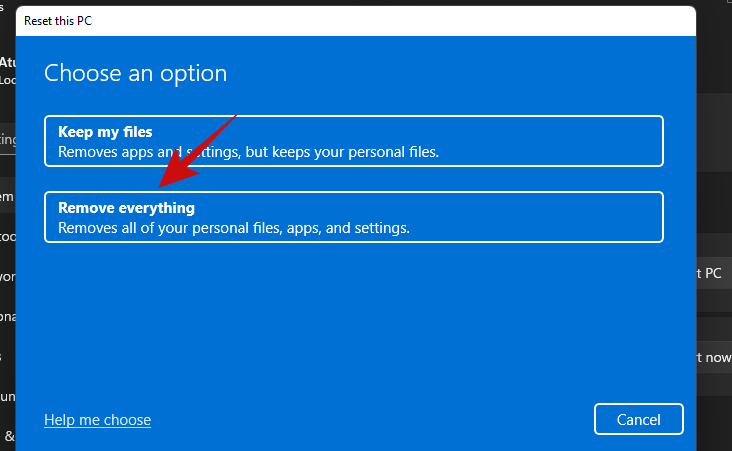
Den næste skærm skulle spørge dig, hvordan du vil geninstallere Windows. Hvis din pc har en internetforbindelse, kan du fortsætte med indstillingen 'Cloud download', ellers fortsætte med 'Lokal geninstaller'.
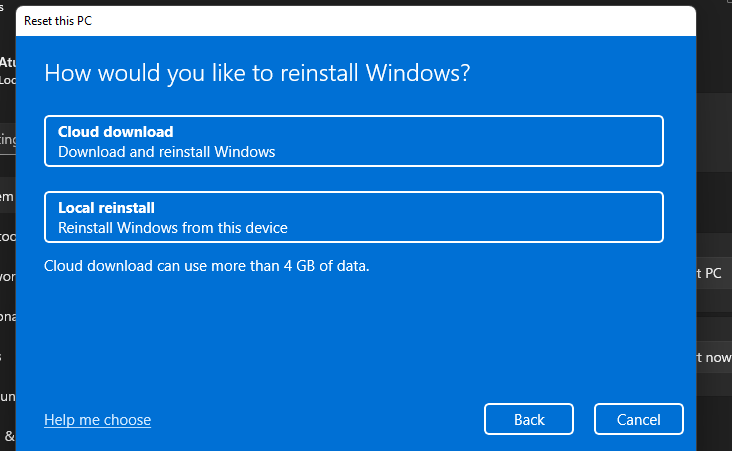
Følg resten af instruktionerne på skærmen, og på ingen tid har du din pc klar med en frisk installation af Windows 11 og ingen spor af dine gamle filer og apps på din harddisk.
Metode #5: Brug af PowerShell
Du kan også formatere drev ved hjælp af PowerShell. Følg nedenstående trin for at formatere et drev ved hjælp af PowerShell på Windows 11.
Tryk Windows + Spå dit tastatur og søg efter PowerShell. Klik på 'Kør som administrator', når det vises i dine søgeresultater.
Indtast følgende kommando for at få en liste over alle diskenheder fra diske installeret på dit system. Dette vil hjælpe dig med at identificere og finde den disk, du ønsker at formatere.
get-volume

Vælg den lydstyrke, du ønsker at formatere, og brug derefter kommandoen nedenfor til at vælge den. Erstat X med det bogstav, der er tildelt det pågældende bind.
select X

Brug nu kommandoen nedenfor til at formatere det valgte volumen. Erstat NAME med et navn efter eget valg, som vil blive tildelt til diskenheden, når den er blevet formateret.
format-volume -filesystem NTFS -newfilesystemlabel NAME
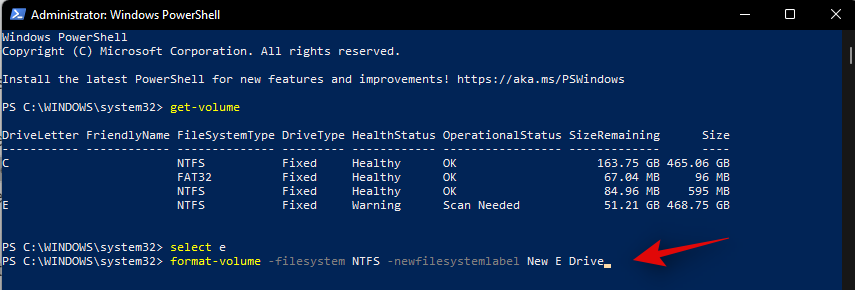
Og det er det! Den valgte diskenhed på det pågældende drev vil nu blive formateret. Vent på, at processen er fuldført, og luk PowerShell for at bruge disken som normalt.
Metode #6: Brug af et tredjepartsværktøj
Der er tonsvis af partitionsadministratorer derude, der kan hjælpe dig med at administrere og formatere alle diske, der er installeret på dit system nemt. Følg guiden nedenfor for at komme i gang. Vi vil bruge Gnome Partition Manager til denne vejledning, som er et industriværktøj, der længe har tillid til, og som er helt gratis. Brug linket nedenfor for at downloade det til dit lokale lager.
Når GParted er downloadet til dit system, kan du blot montere det som enhver anden ISO og komme i gang. Hvis du ønsker at rense og tørre dit opstartsdrev, så anbefaler vi, at du monterer ISO'en på et flytbart medie, som skulle give dig mulighed for at formatere drevet uden for din nuværende Windows 11-installation. Når det er monteret, genstart dit system og få adgang til Gnome Partition Manager fra din boot-menu. Vi vil bruge Rufus til at montere diskbilledet til flytbare medier og derefter genstarte vores nuværende system.
Bemærk: Sørg for, at sikker opstart er deaktiveret på dit system, så du kan starte fra din USB. Skift desuden din lagerkonfiguration til AHCI i stedet for Intel Optane-hukommelse, hvis den er tilgængelig. GParted vil ikke være i stand til at genkende dine drev, hvis lagerkonfigurationen ikke er indstillet til AHCI.
Når du starter op på dit USB-drev, har du mulighed for at starte GParted med forskellige indstillinger. Vi anbefaler, at du vælger den første mulighed og vælger 'Start GParted med standardindstillinger'.
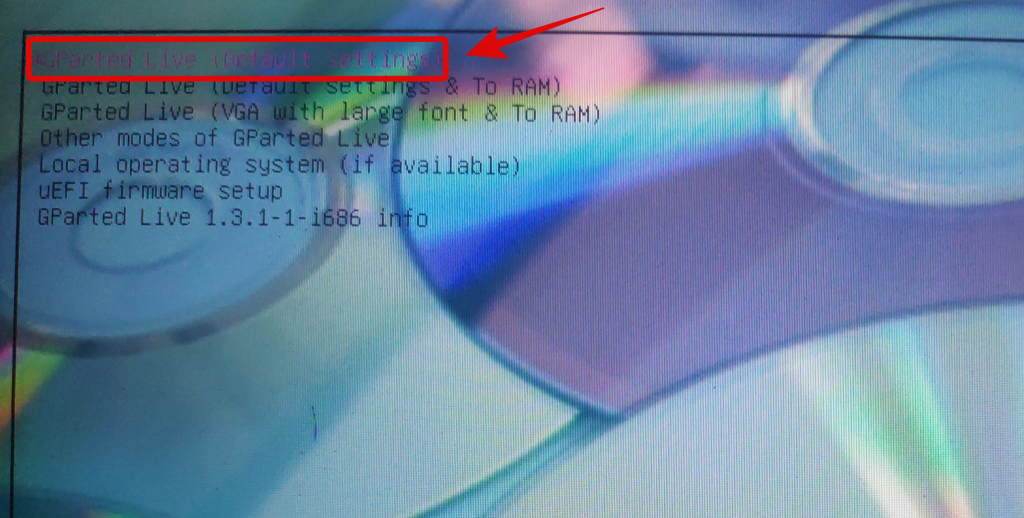
Du vil nu blive bedt om at vælge et tastatur. Denne side er praktisk, hvis dit tastatur genkendes forkert af Gnome. Hvis dit tastatur ser ud til at reagere, skal du vælge 'Rør ikke ved tastaturet' for at fortsætte med processen.
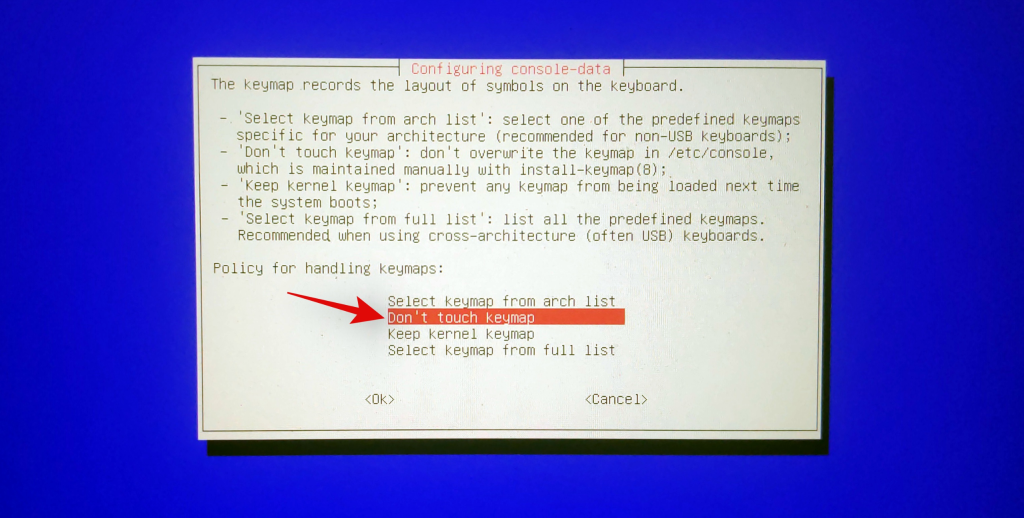
Gå nu videre og vælg dit sprog ved at indtaste dets tilsvarende nummer. Indtast '33', hvis du ønsker at vælge US English.
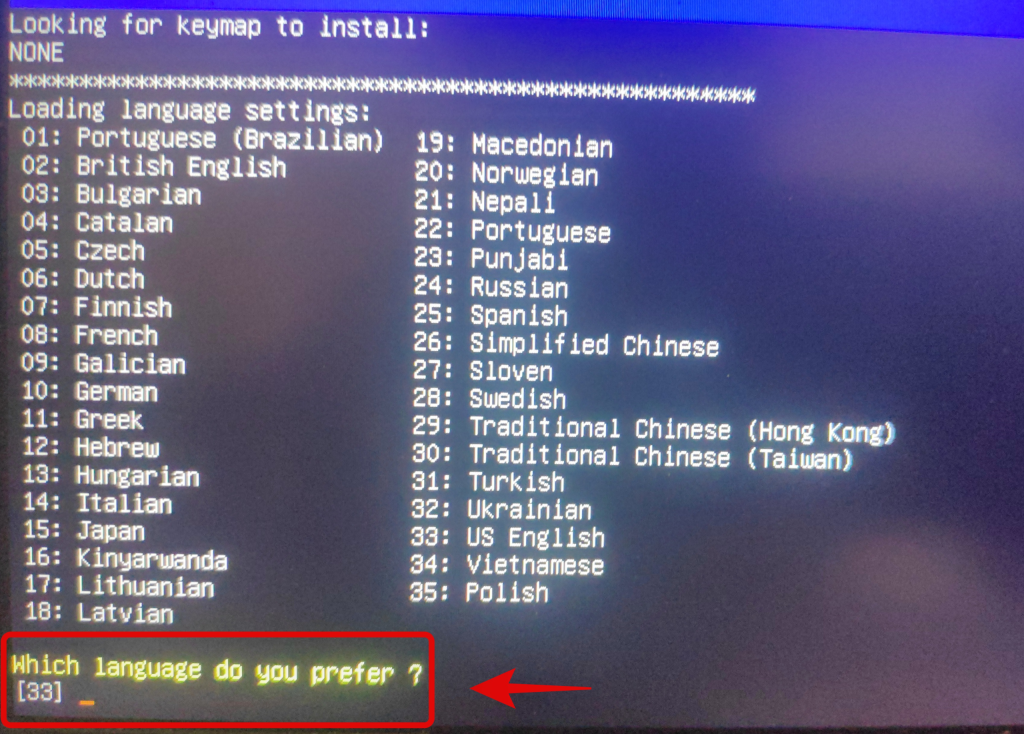
You will now be asked if you wish to load GParted with forced video drivers or the default settings. Force video driver option comes in handy in case GParted is unable to recognize your display or if you are having resolution problems on your system. We recommend you select the first option. Enter ‘0’ to select the option.
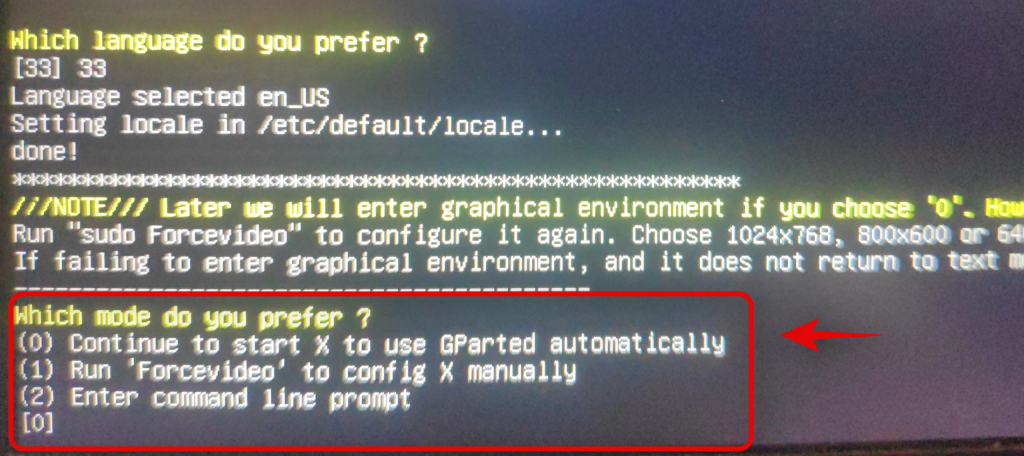
GParted will now be booted and you will be taken to its temporary desktop. The partition manager should automatically launch on your system now. Click on the drop-down menu in the top left and select the desired disk that you wish to format.
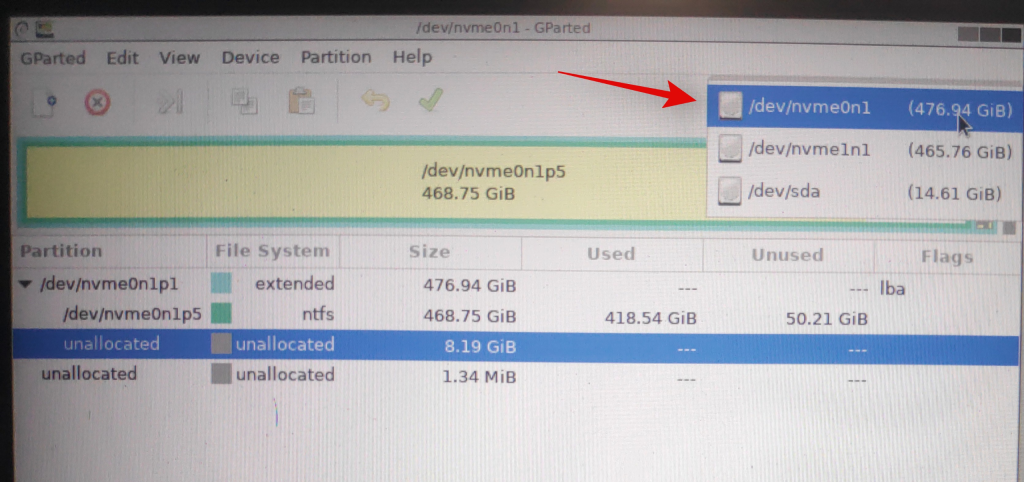
You will now get a list of existing volumes on the selected disk. Click and select the desired volume that you wish to format.
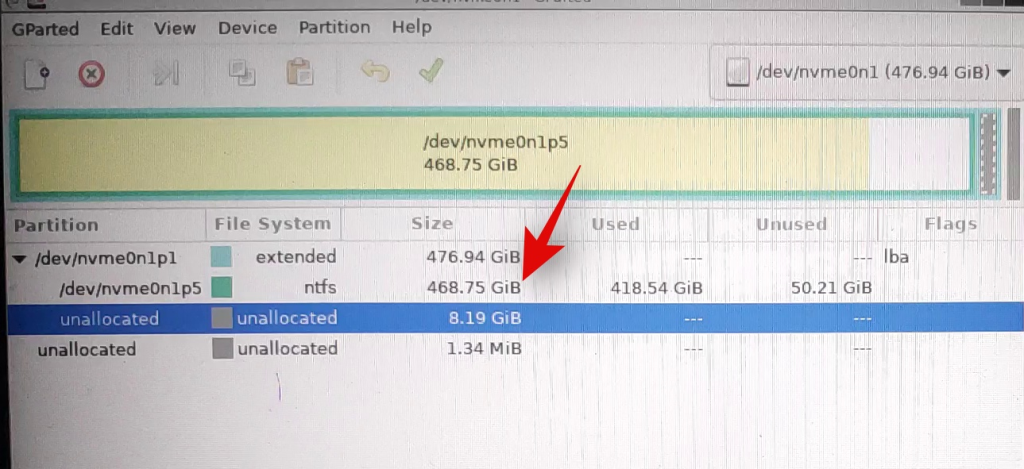
Now click on ‘Partition’ at the top and hover over ‘Format to’.
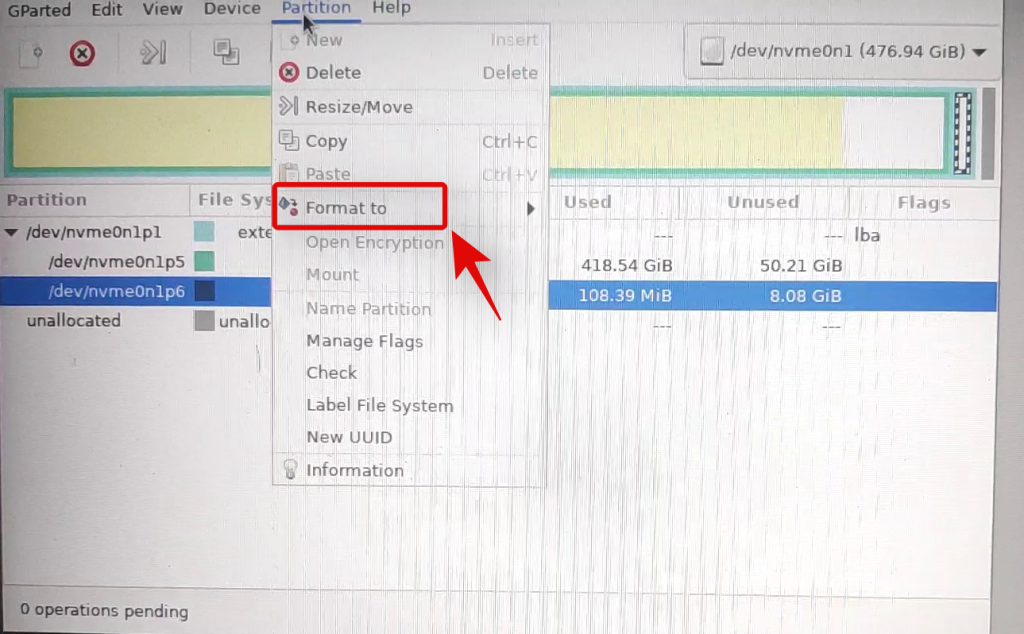
Select your desired drive format but it is recommended that you format your drive in NTFS for all modern systems.
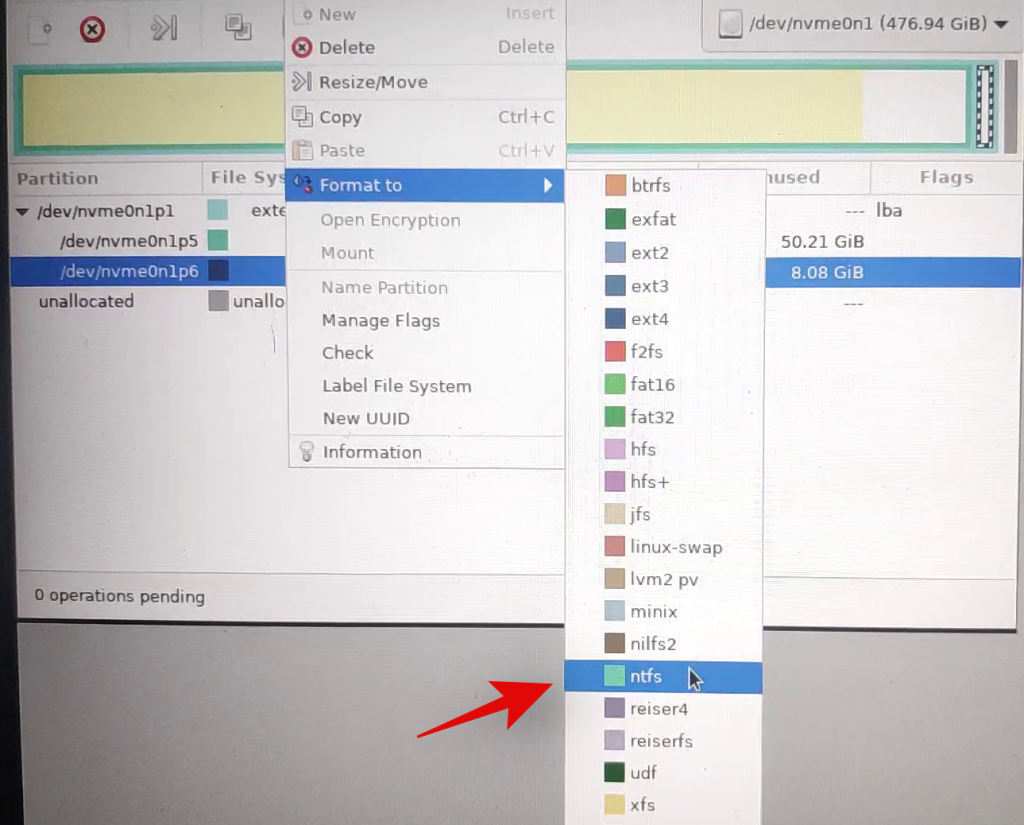
Once you select the desired disk format, GParted will cue the current operation in its task list. Click on the checkmark in the toolbar at the task to execute cued tasks.
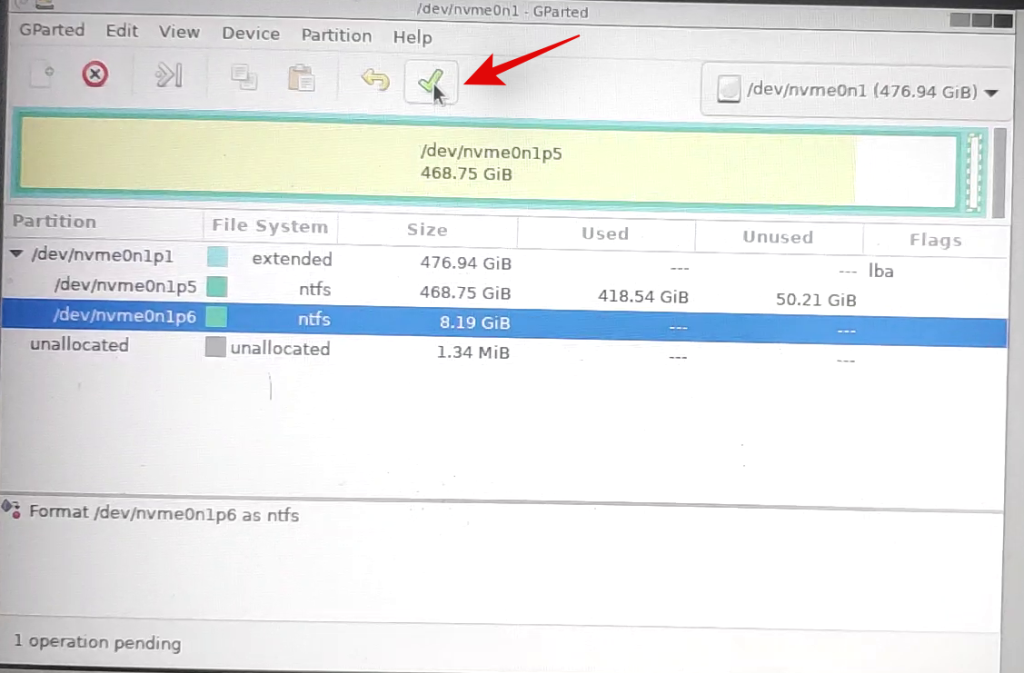
Click on ‘Apply’ to confirm your choice.
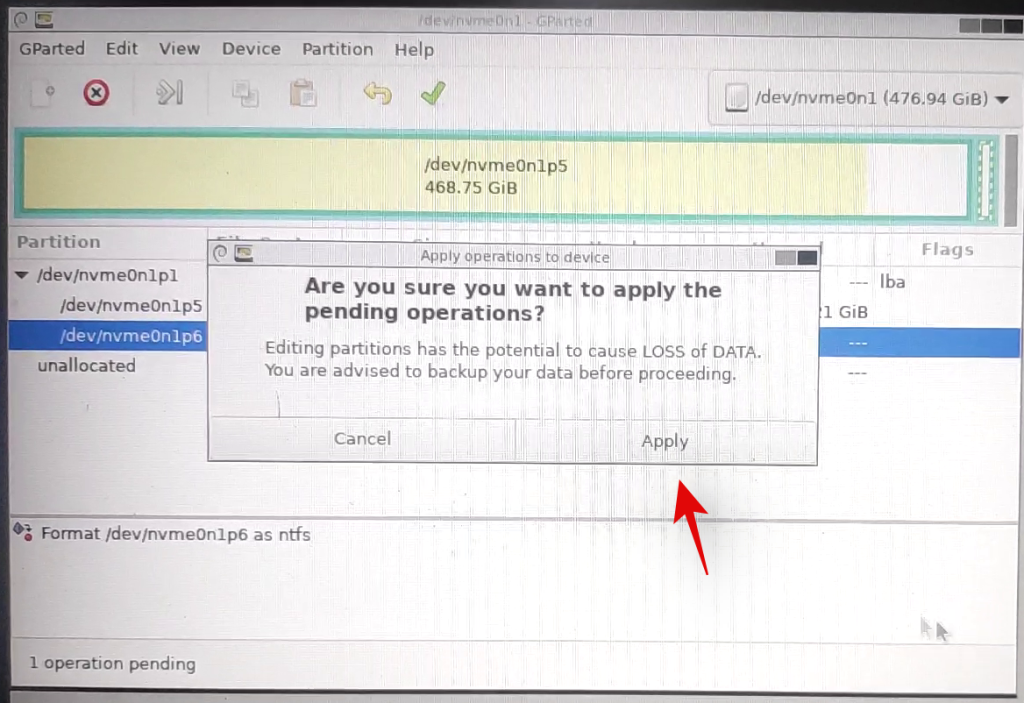
GParted will now perform the necessary operations and the selected volume should be automatically formatted at the end of this process. Close the GParted utility and click on the Power icon on the desktop. Click and select ‘Restart’ and then click on ‘Ok’.
Boot into the BIOS on your system and revert the changes you made earlier. This includes enabling secure boot, changing your storage configuration back to its default settings, and changing your boot device order.
Once you have reverted the changes, unplug your USB and exit the BIOS while saving the changes you made.
You will now be booted into Windows normally and the selected volume should now be formatted and wiped on your system.
Method #7 From Recovery
If you are in Windows Recovery Environment and unable to boot into Windows, then you can use the guide below to format a drive on your system. Please keep in mind that it is not recommended to format your boot drive using the guide below from your recovery environment as this could cause issues with your boot drive and make it unrecognizable. You will then have to completely format the drive and set it up again and install a new version of Windows on it. Hence, use the guide below only to format secondary drives from the Recovery environment or ensure that you have a Windows 11 installation media handy to reinstall the OS that you will remove from your boot drive.
Once you are on the Windows Recovery or troubleshooting screen, click and select ‘Advanced Options’.
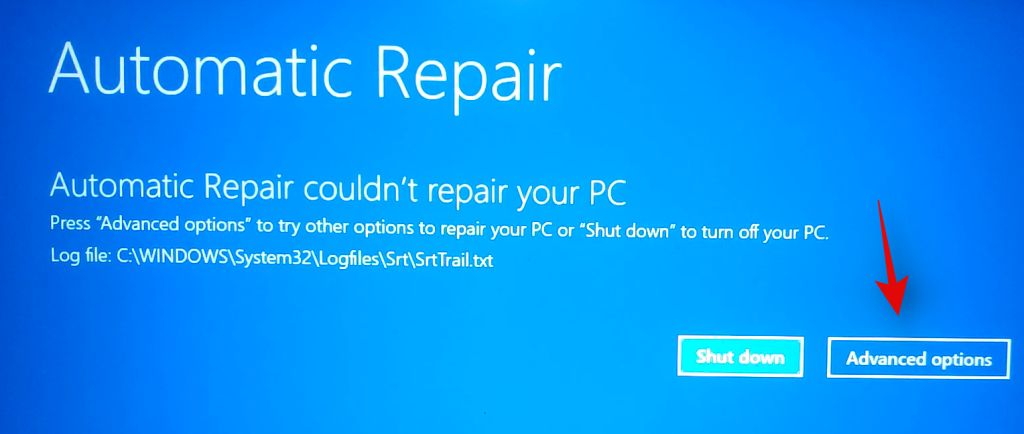
Click on ‘Troubleshoot’.
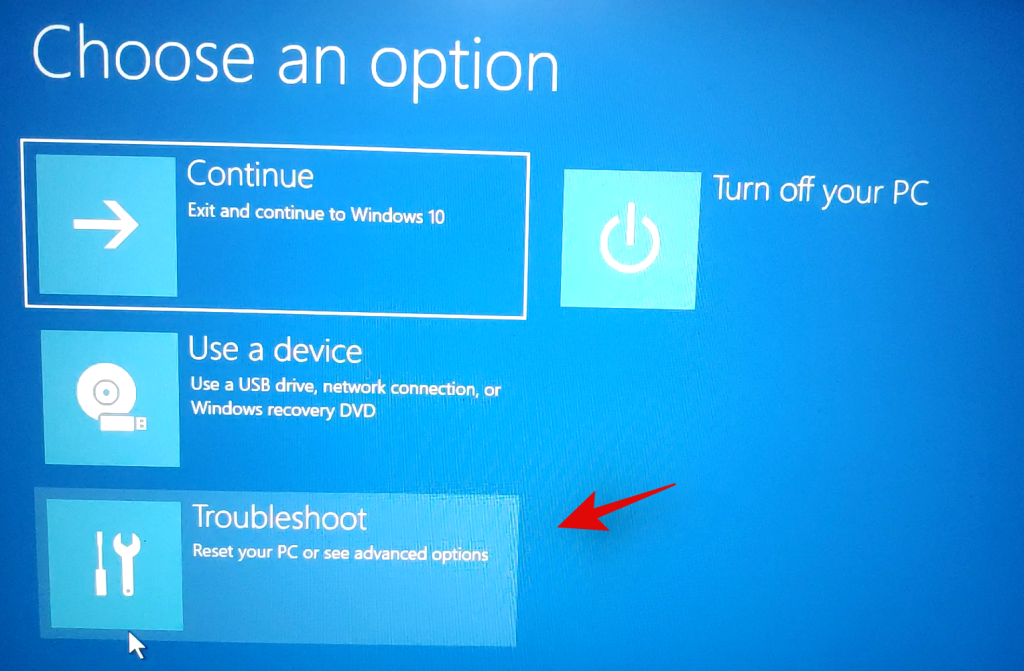
Select ‘Advanced Options’ again.
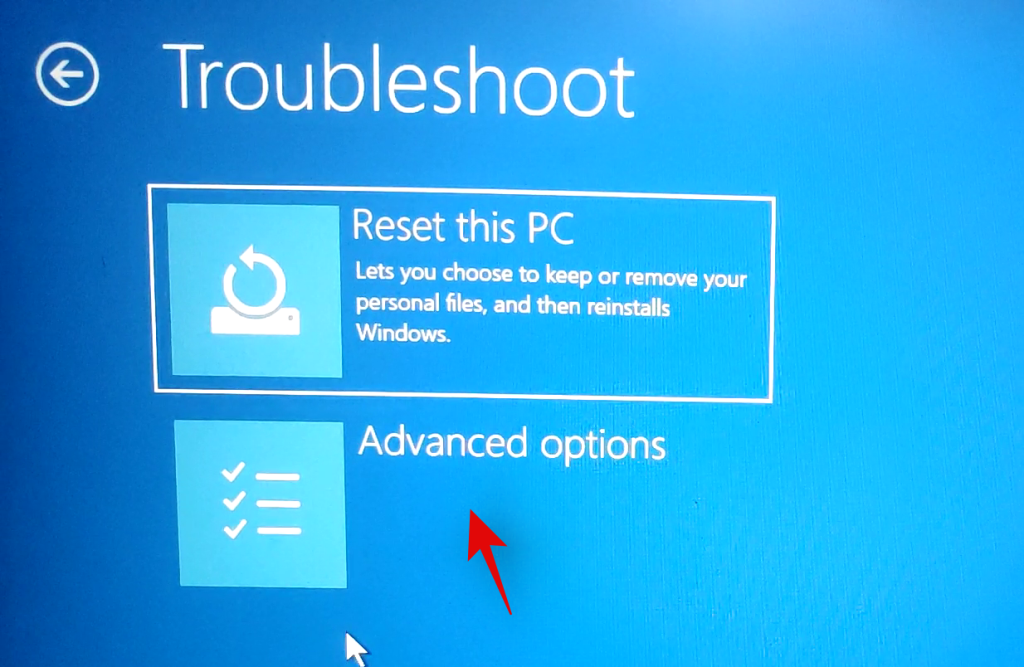
Now click on ‘Command Prompt’ to launch the command prompt.
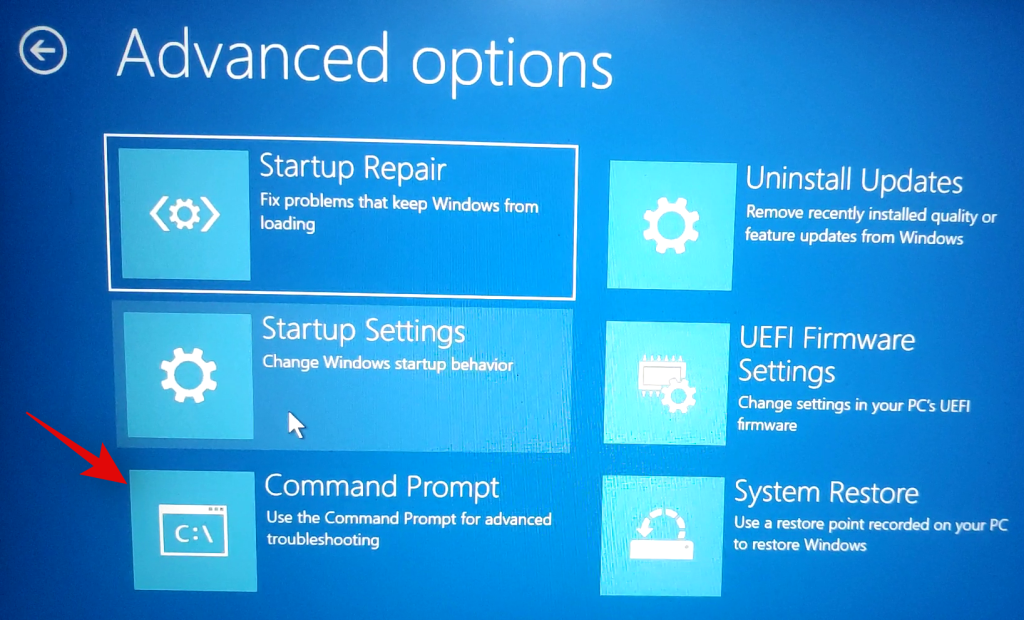
Type in the following command to launch the diskpart utility.
diskpart
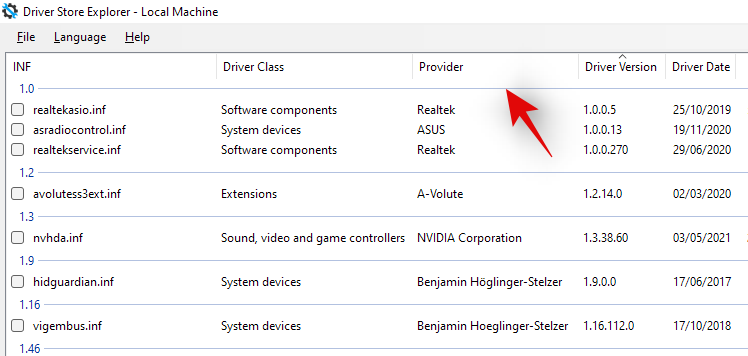
Now execute the following command.
list volume

Find the volume you wish to format and use the command below to select it. Replace X with the dedicated number of the volume you selected.
select volume x
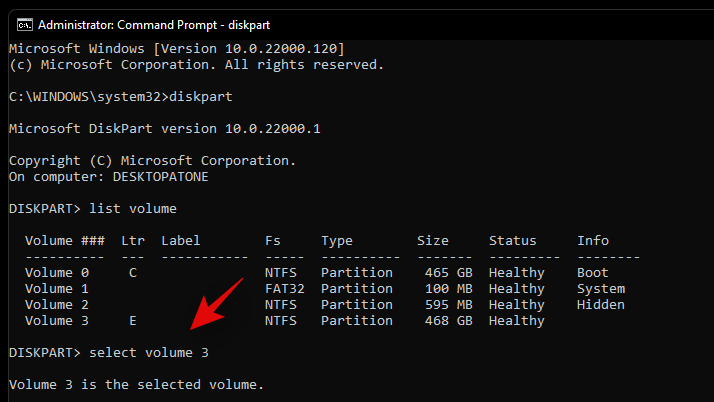
Now use the following command to format the selected volume with NTFS as its format. Replace NAME with the name you wish to give your newly formatted volume.
format fs=ntfs quick label=NAME
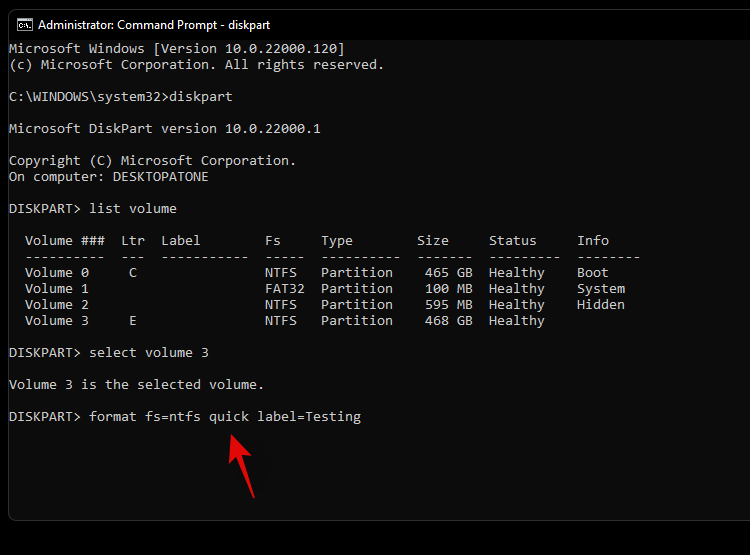
Let diskpart do its thing and the volume should be formatted within a few seconds. Once formatted, type in the following command to exit CMD.
exit
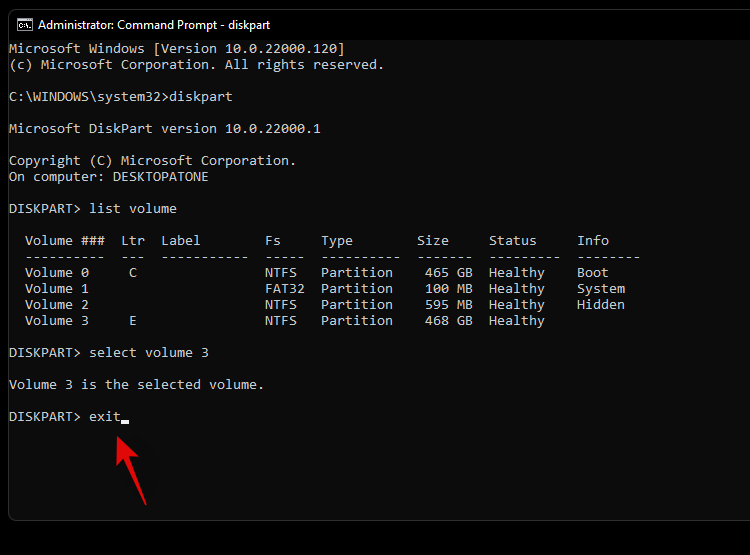
Now restart your PC and the selected volume should be formatted on your system.
Method #8: Using the Windows Setup
You can also format a drive-by directly using the Windows setup as well. Depending on your requirements, you can then exit the setup or continue installing Windows on the freshly formatted drive.
Launch the Windows setup from the installation media when prompted at the time of boot. Once the setup is launched, select your language and click on ‘Next’.
Click on ‘Install Windows’.
Windows Setup will now detect the drives installed on your system. Click and select the drive you wish to format and click on ‘Format drive’ at the bottom.
Confirm your choice and Windows will now proceed to format the selected drive.
And that’s it! Once the drive is formatted, you can continue formatting other drives on your system using the setup or continue with the Windows installation depending on your requirements.
How to completely format a drive on Windows 11 or 10
Completely formatting a drive is a little different from the traditional format methods listed above. While the above-listed methods will delete all your data from the drive, the existing partitions will remain. Additionally, if it is the boot drive that we are talking about then you will also have recovery and EFI partitions on the drive. While this shouldn’t be an issue on your system, they can cause problems when switching systems as the boot order or the recovery media can be recognized incorrectly by the new system.
In such cases, you can wipe all partitions from a drive and completely format it. You can then create new partitions and volumes on the drive depending on the need of the new system that you are switching to. Follow one of the guides below to completely format a drive and remove all partitions and volumes.
Method #1: From a third-party utility
If you wish to completely format your drive using a third-party utility then we recommend using the Gnome Partition Manager. This is an open-source and completely free utility hosted on Sourceforge. You can even compile the binaries on your own in case the privacy is a concern. Follow the guide below to get you started. The Gnome Partition Manager is available in ISO format which allows you to mount it to a removable media and use it individually as well, in case you are looking to completely format your boot drive. Use Rufus to create a USB installation media using the Gnome Partition Manager ISO.
Required
Guide
Make the necessary BIOS changes on your system and plug in the GParted USB into your system. Once plugged in, reboot your device and boot from the USB by pressing a key if prompted.
You will now be at the GParted Splash Screen where you will be requested to select the relevant version of GParted that you wish to use. We recommend you select the first one which is GParted Live with default settings.

Once booted, you will be prompted to change your keymap if needed. If your keyboard seems to be working as intended, select ‘Don’t touch keymap’ or use one of the other options to get keyboard working within Gnome.

Select your preferred language by entering its relevant number. Use number 33 for US English.

Now if you wish to manually install or configure your video output then enter 1 on the next screen. Else if the resolution and video response times seem to be fine for now then enter ‘0’.

GParted will now boot with the dictated settings. Once launched, you will be taken to the temporary desktop where the GParted utility will be launched automatically. Click on the drop-down menu in the top right corner and select the desired disk that you wish to completely format.

Now select a volume on the selected disk and click on ‘Partition’ at the top. Select ‘Format to’ and then select ‘NTFS’.

Repeat the steps above for all the partitions on the disk. Once each partition is cued for formatting, click on the checkmark in your toolbar to execute these tasks.

Confirm your choice by clicking on ‘Apply’.
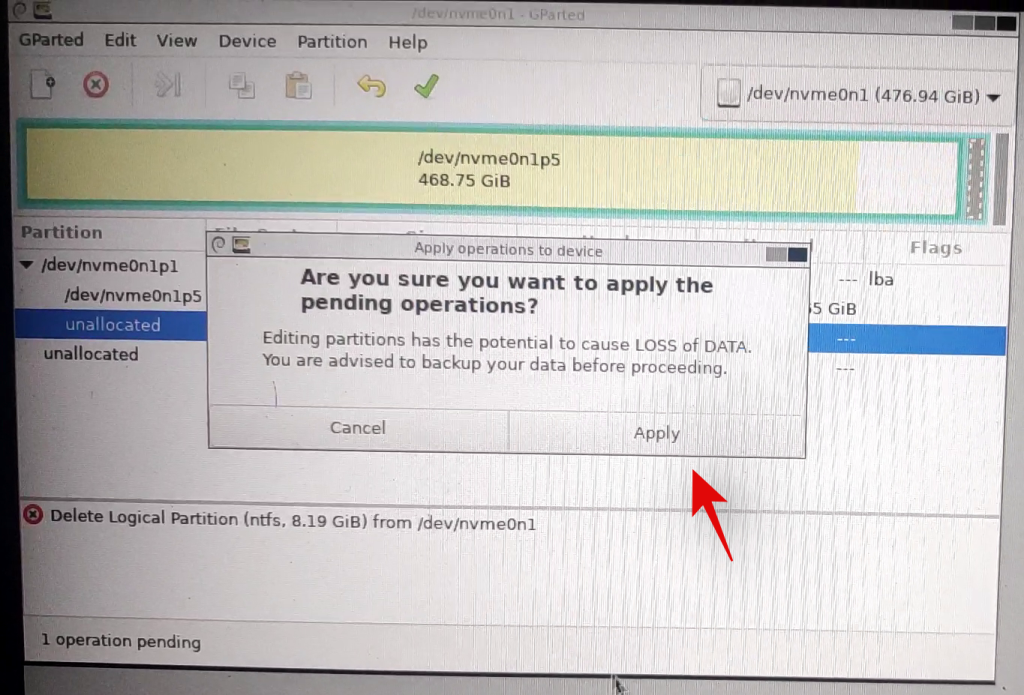
All the selected partitions will now be formatted. We can now delete these partitions. Click and select each partition one by one and then click on the X in your toolbar. This will cue each partition for deletion.
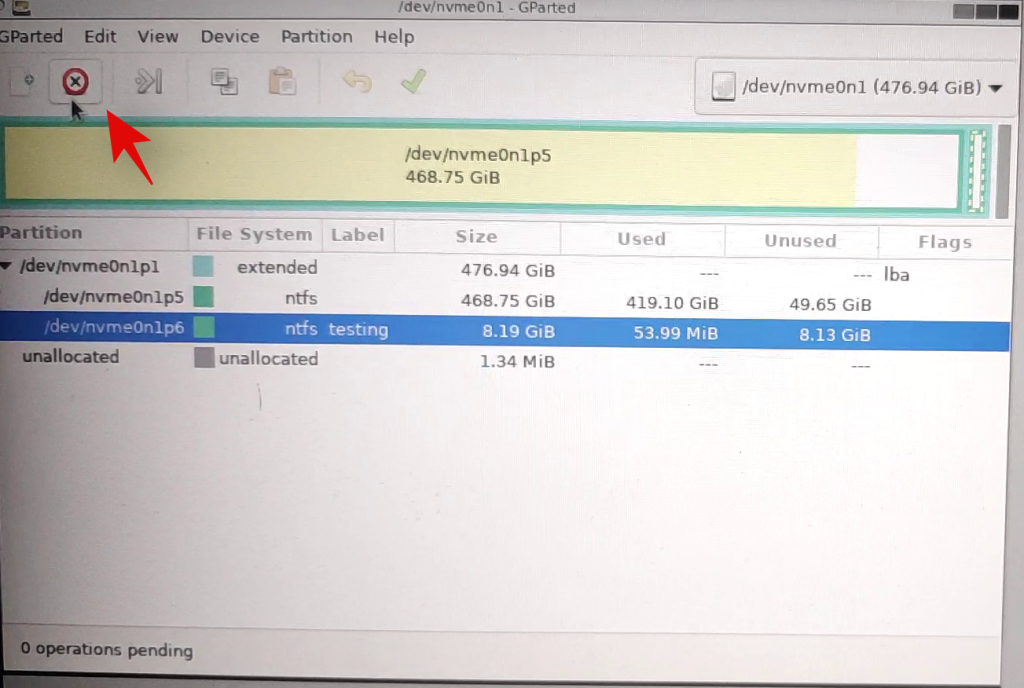
Click on the checkmark again to delete all the selected partitions.
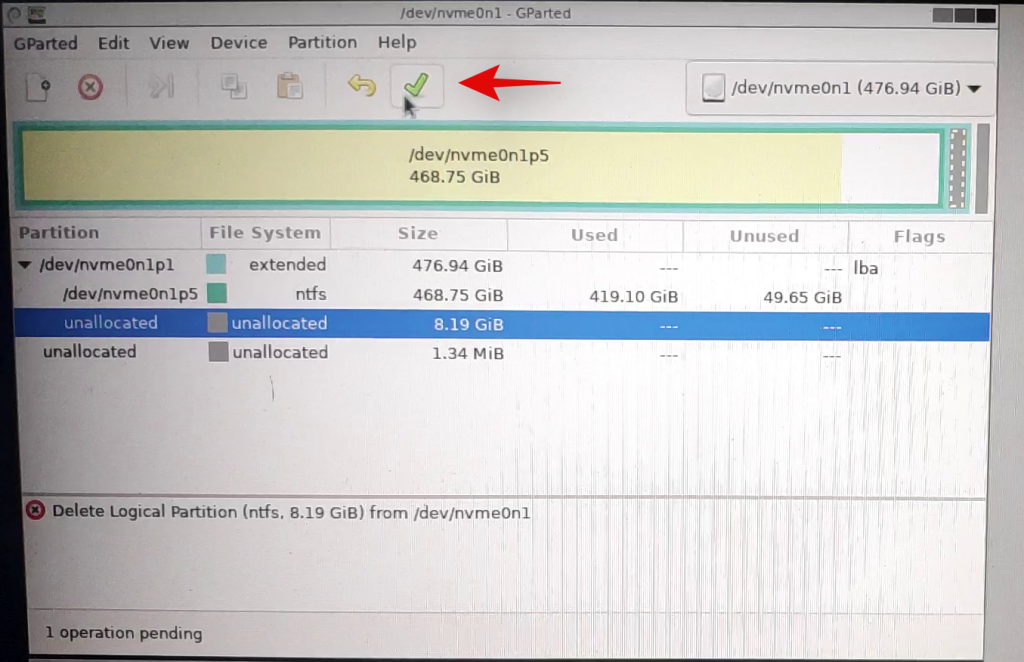
Confirm your choice by clicking on ‘Apply’.

Once all partitions are deleted from the disk, click and select the unallocated volume on the disk and then click on ‘New’ at the top. If you have an existing primary partition on the disk then select that partition and click on the ‘Resize’ icon instead.
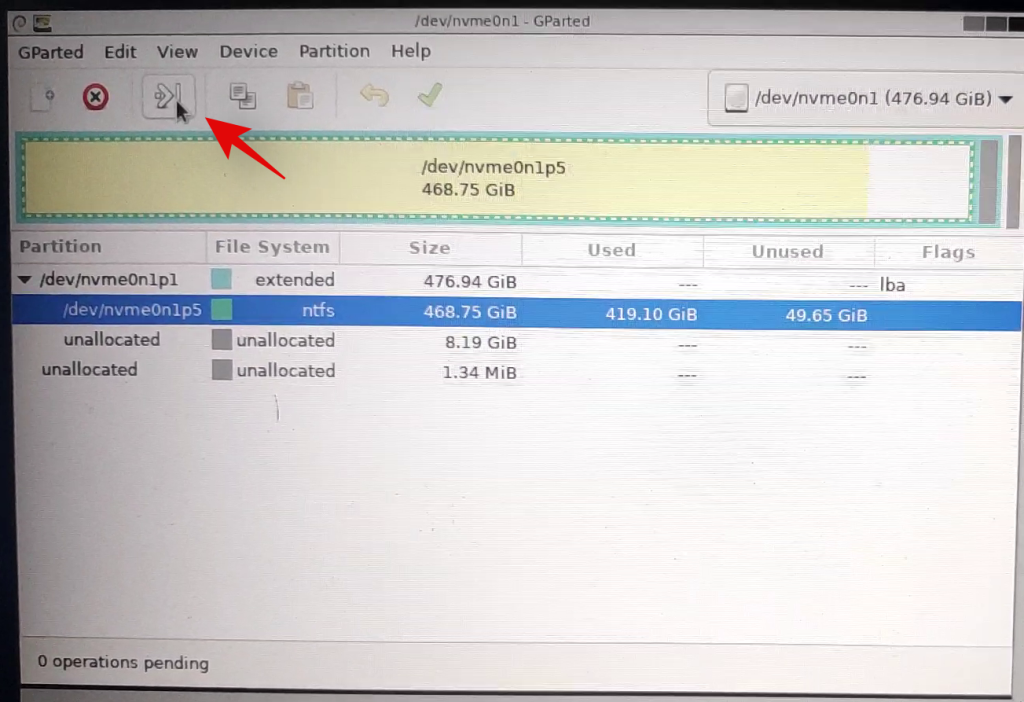
Select the entire size of your disk and enter a name for your disk beside the label text field. If resizing an existing partition, use the slider at the top to drag it to the maximum size.
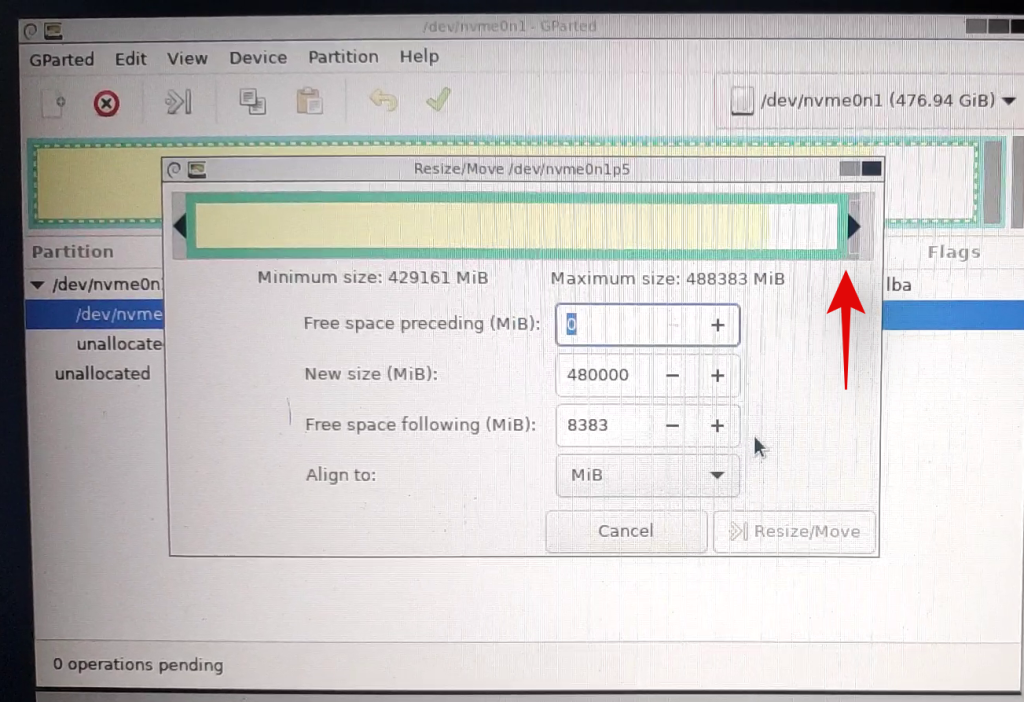
Click on ‘Ok’ or ‘Resize/Move’ depending on your choice.
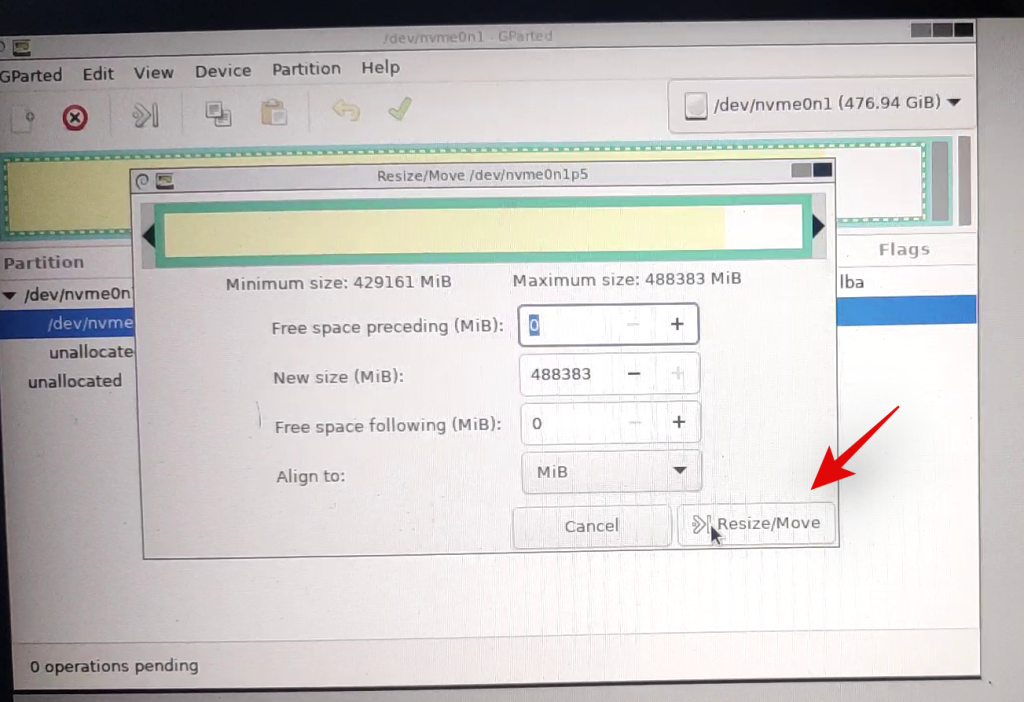
And that’s it! Your entire drive should now be formatted and a single partition equal to the entire size of your drive should now be created which will allow you to use the drive, however, you wish. You can now exit GParted by clicking on the power icon on the desktop. Once rebooting, boot into your BIOS and revert the changes you made earlier. Once reverted, unplug the USB and boot into Windows normally.
Method #2: From CMD
Diskpart is a hugely versatile utility that can be used to completely format a drive as well. Once completely formatted via diskpart, you will need to set your disk as GPT or MBR depending on your platform needs for the drive to be recognized properly.
Launch CMD using one of the guides above depending on the current state of your system. Once CMD is launched, enter the command below to launch diskpart.
diskpart

Now enter the following command and find the disk you wish to completely format.
list disk

Note down the concerned disk’s number and use the command below to select it. Replace N with the disk number you noted down earlier.
select disk N
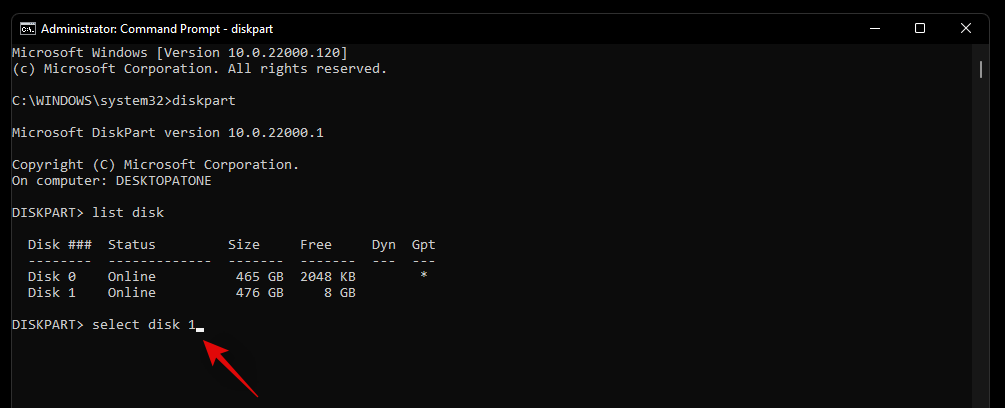
Now enter the command below to clean your disk.
clean
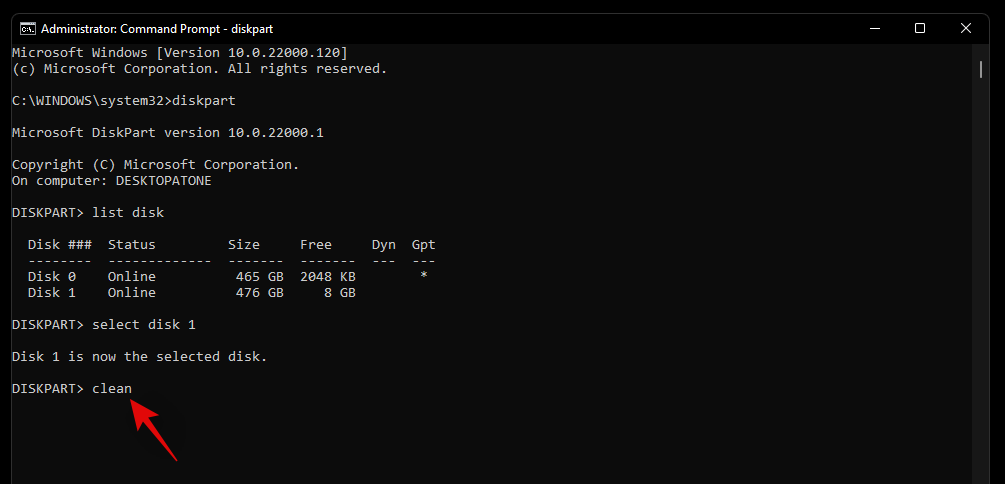
We will now need to create a partition on the selected disk so that it is usable. Enter the command below to get started.
create partition primary
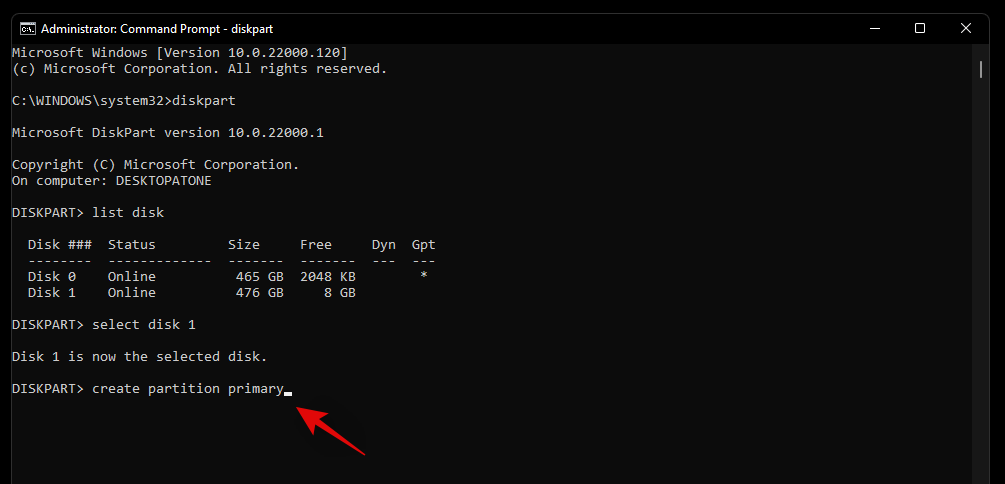
Use the command below to format the newly created volume now.
format fs=ntfs
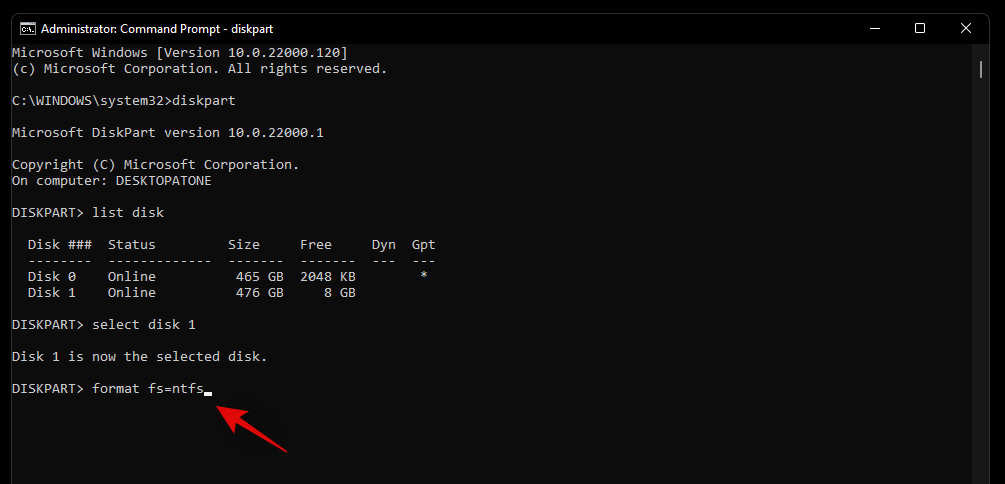
Enter the following command to assign a letter to the drive. Replace X with the letter of your choice.
assign letter=X
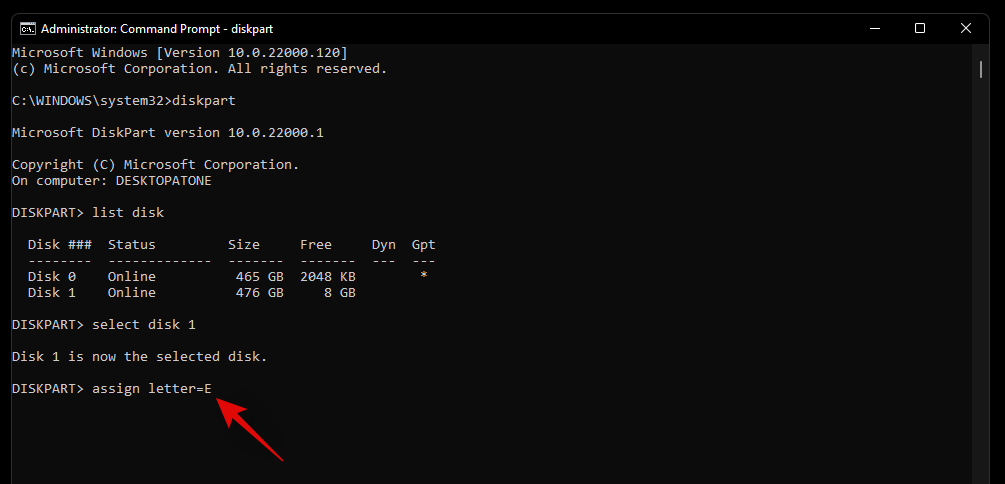
And that’s it! The selected drive should now be completely formatted. Any recovery or EFI partitions on the drive should also now be deleted.
How to switch between MBR and GPT
MBR and GPT are types of disk setups that are used to install new OS on a drive. These types are essential in case you are trying to switch between platforms or use Linux on yoru system. While GPT is a new disk setup with various advantages, MBR is still the most compatible setup format out there. If you are trying to switch your disk setup from MBR to GPT or vice versa then you can use the guide below to change the disk type.
Note: When converting, your disk will be cleaned and all the data will be removed from it. You will need to create new partitions on the drive as well so ensure that you have backed up your data before proceeding with the guide below.
Launch CMD on your system either from the recovery environment or from within Windows depending on the current state of your system. Once launched enter the command below to launch the diskpart utility.
diskpart

Now enter the following command to get a list of all the disks on your system. Note down the number for the concerned list so that you can access it later on.
list disk
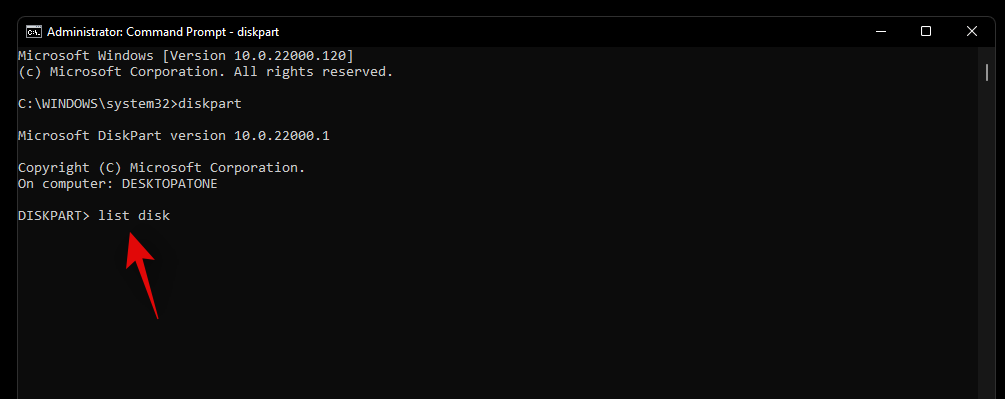
Enter the following command and replace N with the disk number you noted down earlier.
select disk N
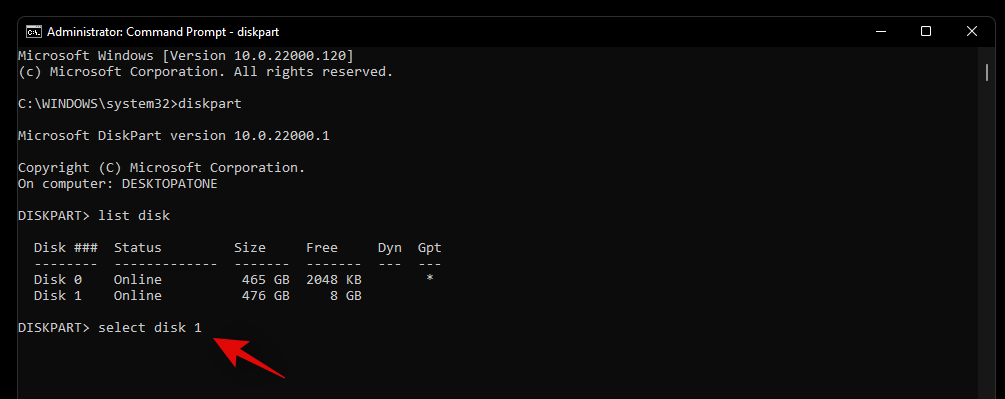
Use the command below to clean the drive.
clean
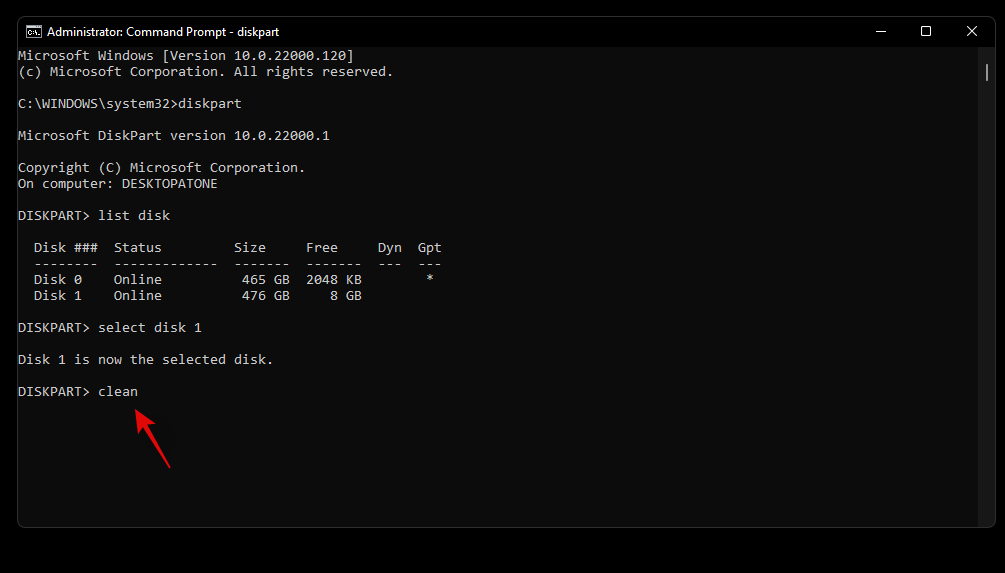
Now let’s convert the drive to your desired disk type. Replace TYPE with MBR or GPT depending on your current requirements.
convert TYPE
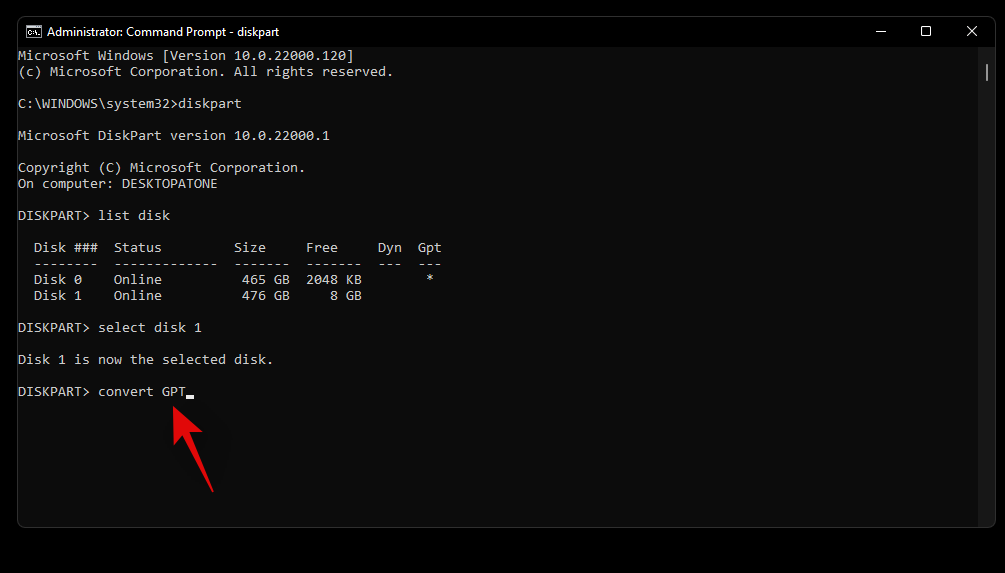
Once the disk has been converted, use the command below to create a primary partition.
create partition primary
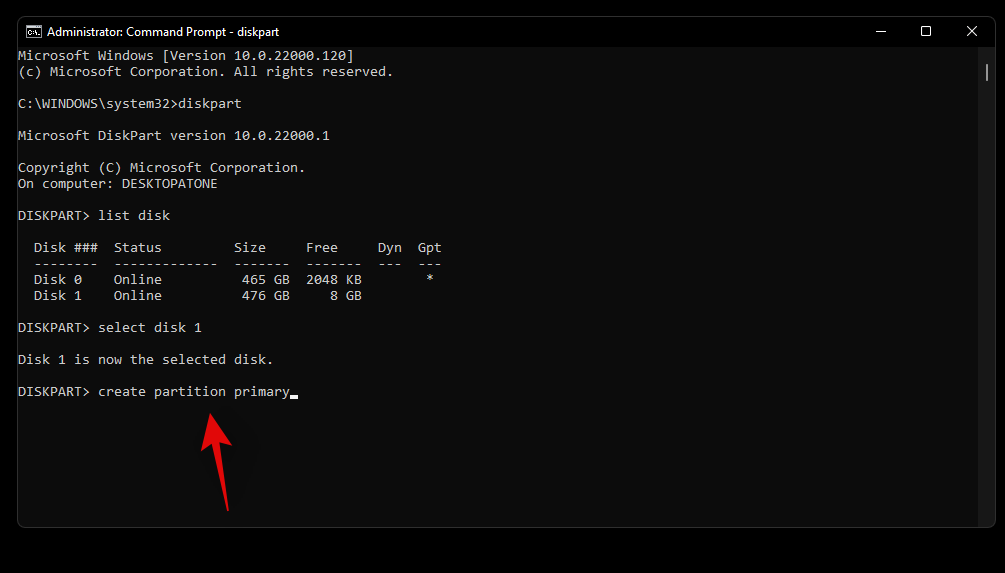
Now use the command below to assign a letter to the drive. Replace X with the drive letter of your choice.
assign letter=X
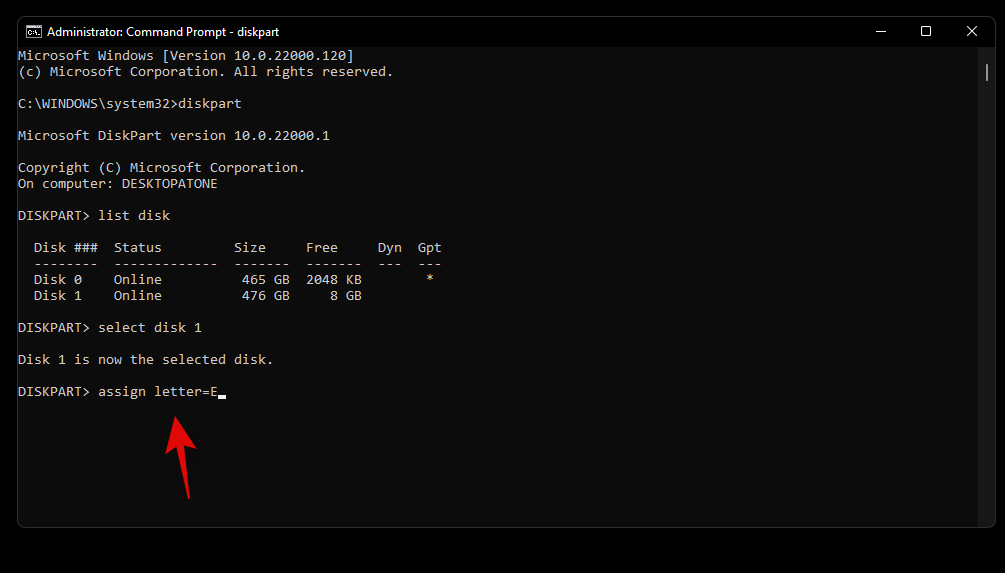
And that’s it! You will now have converted the selected drive to GPT or MBR depending on your current requirements.
How to create new volumes and partitions
Once you have formatted your drives you will find that it is not that easy to use them within Windows. Formatted drives need dedicated partitions which can then be used as storage spaces to store your data or install an OS. Use the guide below to create custom partitions for a selected drive in Windows 11.
Method #1: From CMD
Launch CMD and use the command below to enter diskpart.
diskpart
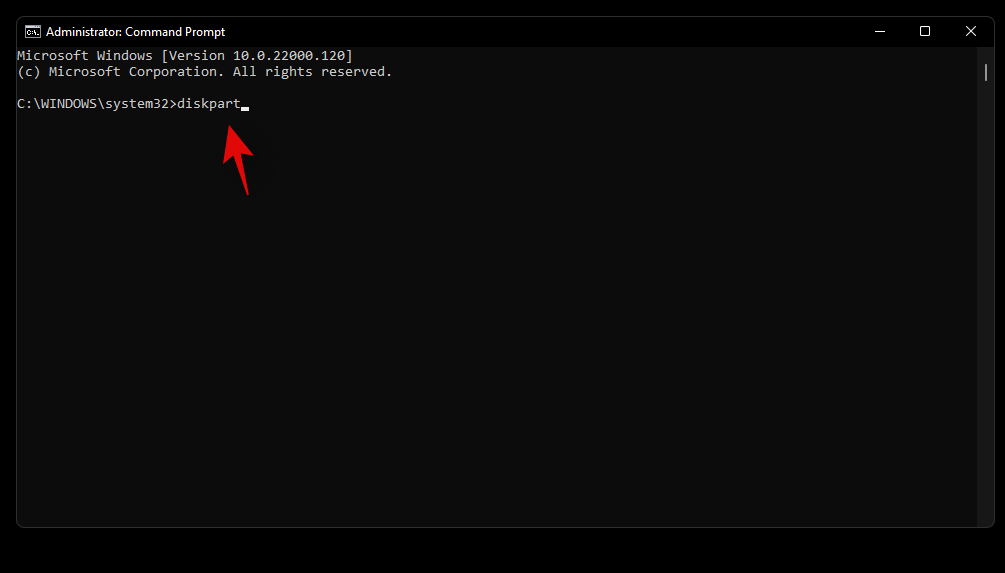
Enter the following command to get a list of all the disks installed on your system. Note down the disk number of the concerned disk.
list disk
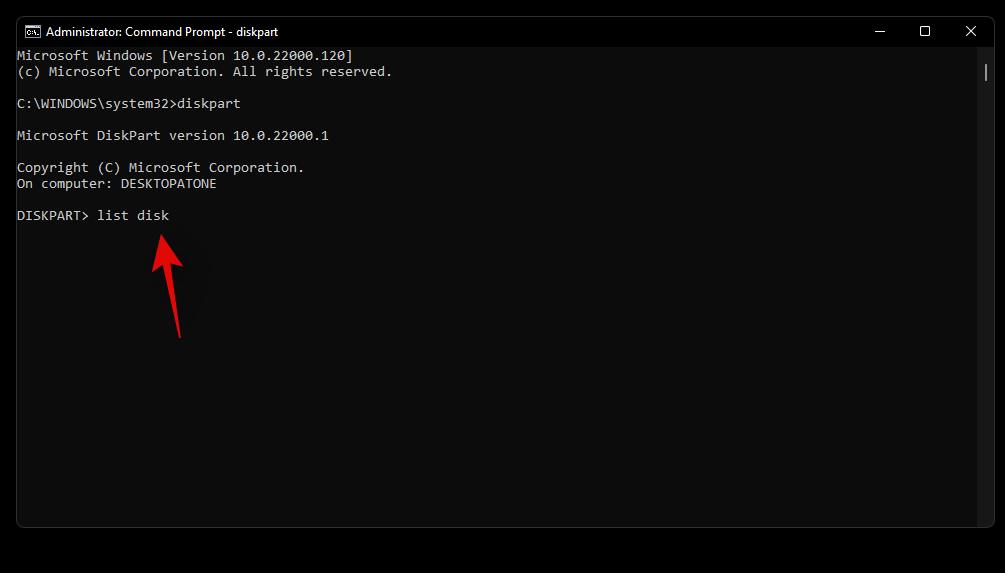
Now enter the command below and replace N with the disk number you noted down earlier.
select disk N
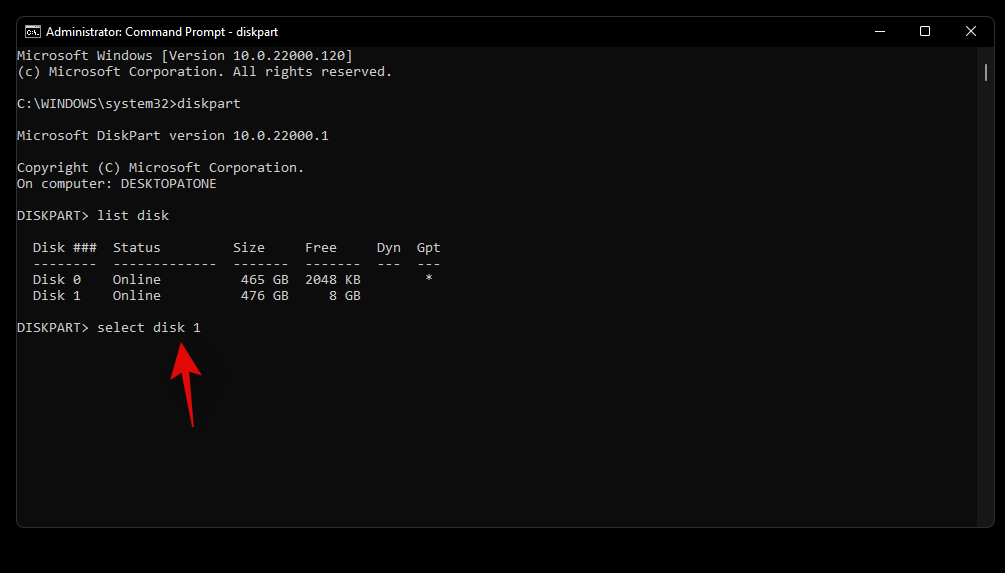
Use the command below to create a custom partition on the selected disk drive. If a partition already exists on the drive then replace ‘primary’ with ‘extended’. Additionally, replace XXXX with the size of your choice for the partition. The size is measured in megabytes where 1000MB = 1GB.
create partition primary size=SIZE
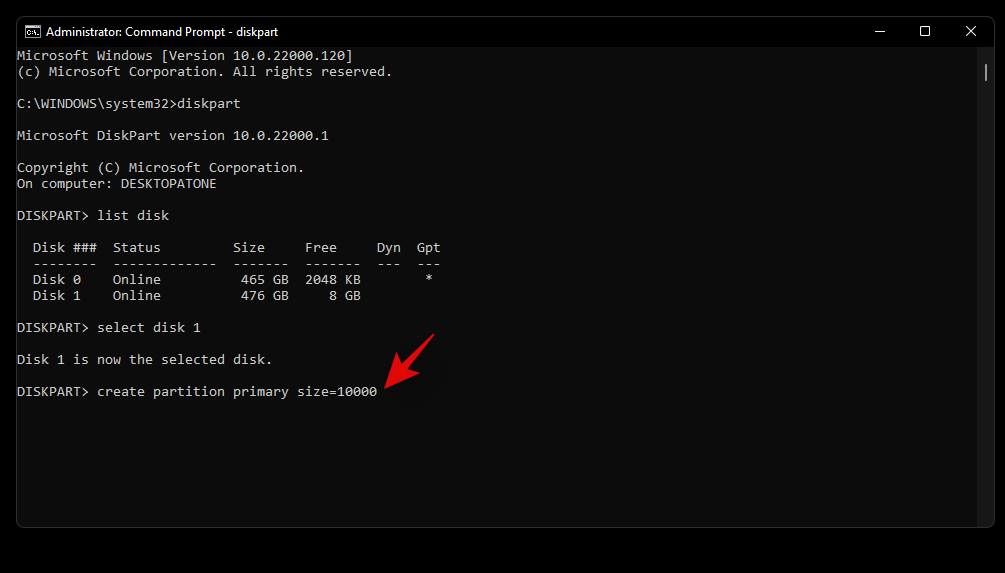
Now enter the following command. Your newly created partition will now show up in this list. Note down its volume number
list volume
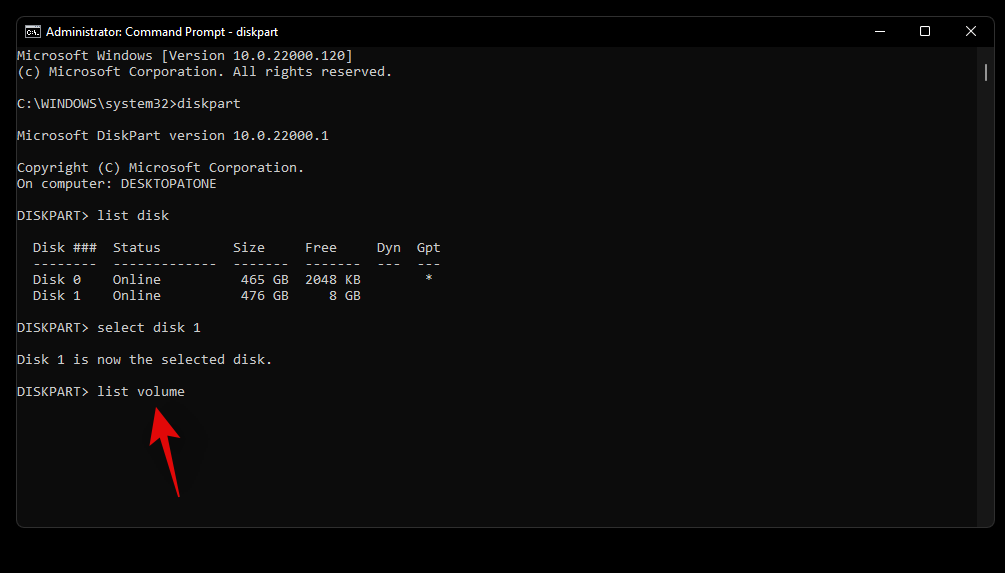
Enter the following command and replace N with the volume number you noted down earlier.
select volume N

Now use the following command to assign a letter to the selected volume. Replace X with the letter of your choice.
assign letter=X
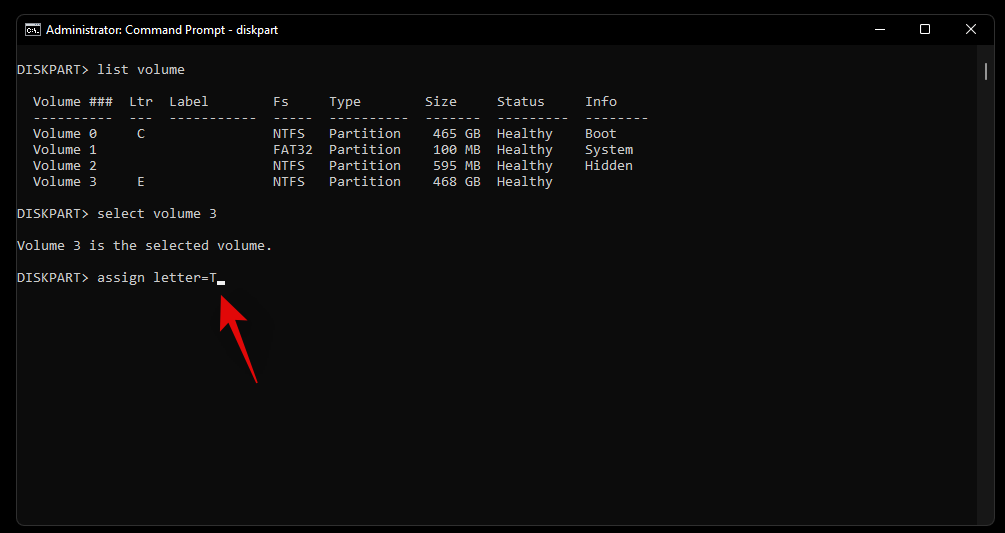
And that’s it! You will now have created a new partition on the selected drive depending on your current needs and requirements.
Method #2: From Disk Management
You can also create a new partition son your system using the Disk Management utility provided within Windows. Use the guide below to get you started.
Press Windows + R on your keyboard and type in the following. Press Enter on your keyboard to launch the disk management utility.
diskmgmt.msc
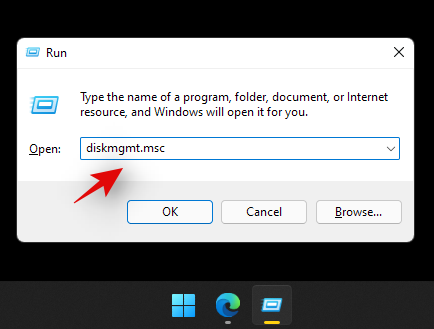
Once the disk management utility is launched, you will get a graphical representation for all your drives. Right-click on the unallocated space at the bottom of your screen and click on ‘New Simple Volume’.
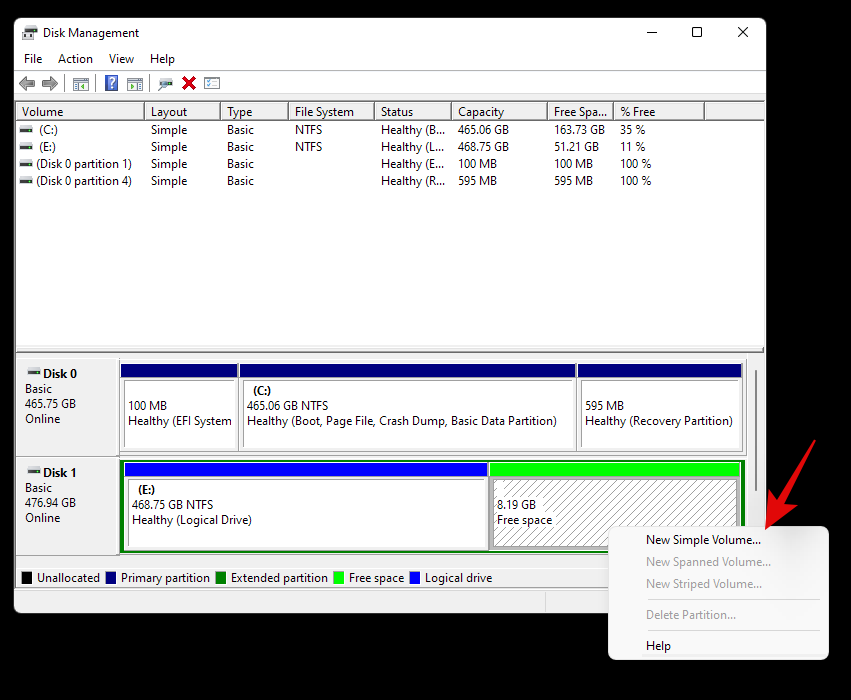
The volume creation wizard will now be launched. Click on ‘Next’ to get started.
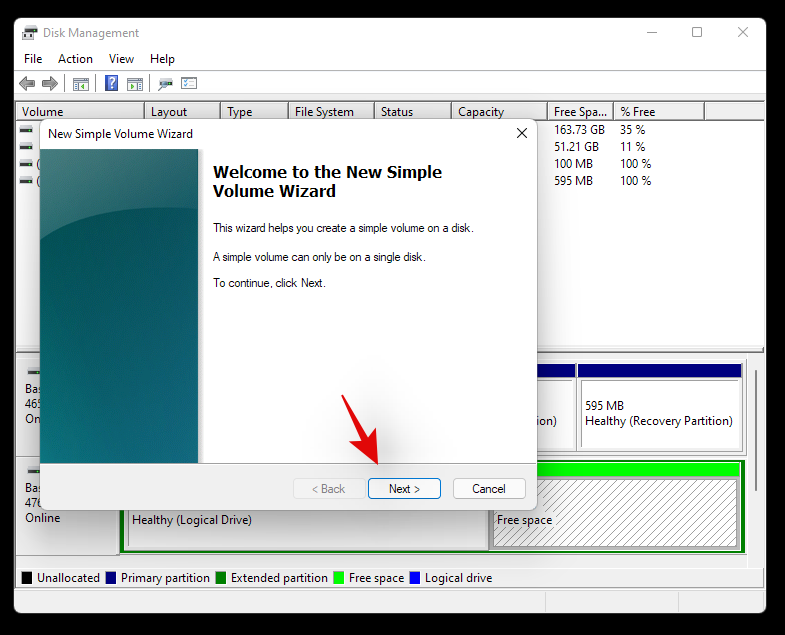
Select a custom size if needed. By default, Windows will use the entire unallocated space to create a new simple volume on your drive. Click on ‘Next’ once you have set the desired size.
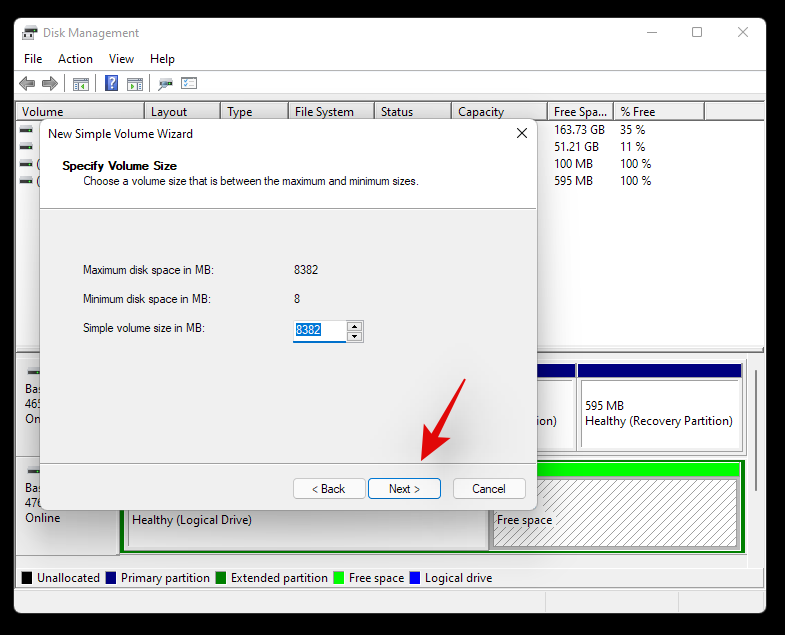
Choose a drive letter for your new volume now. Click on ‘Next’ once you are done.
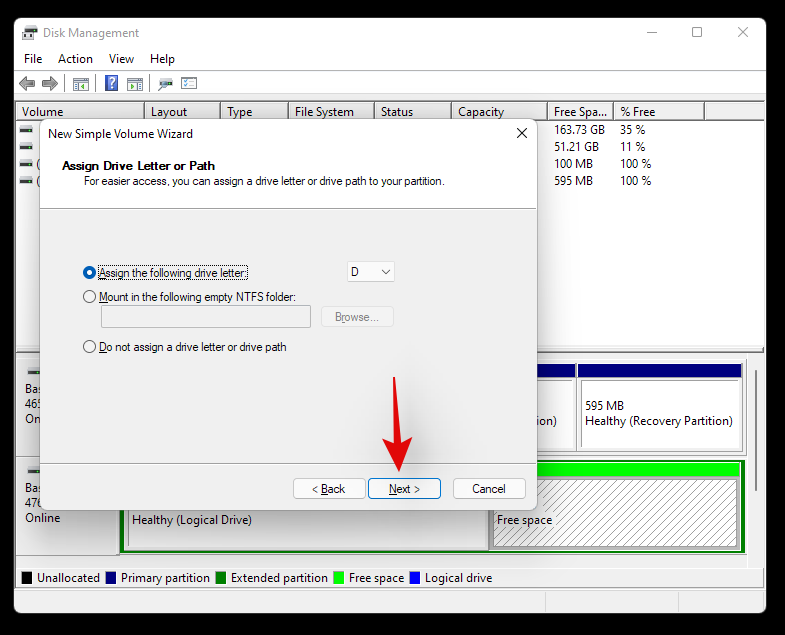
You will now be given the option to format the unallocated space before the volume is created. Choose your disk format by clicking on the drop-down menu and set a name for the new volume beside Volume Label. If you do not wish to format the unallocated space, then click and select ‘Do not format this volume’. Click on ‘Next once you are done.
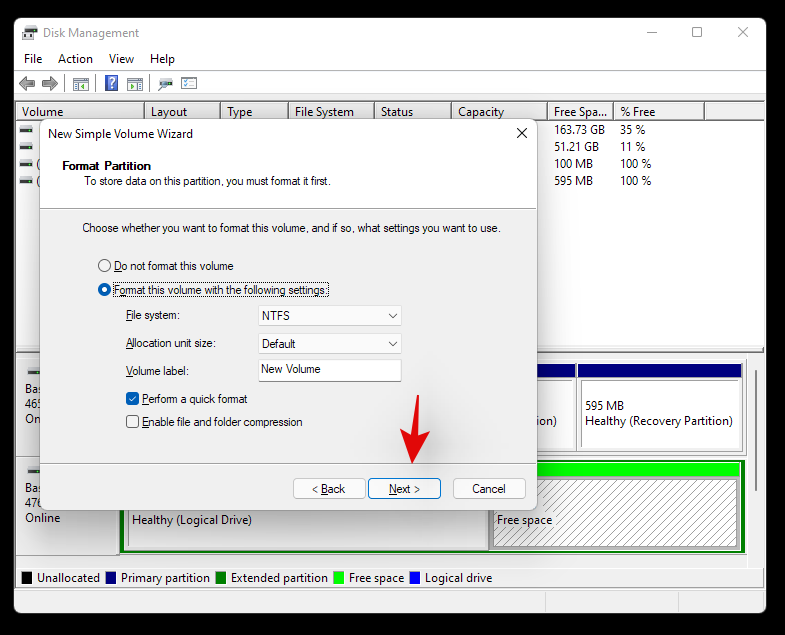
Finally, click on ‘Finish’ and the new volume will now start being created.
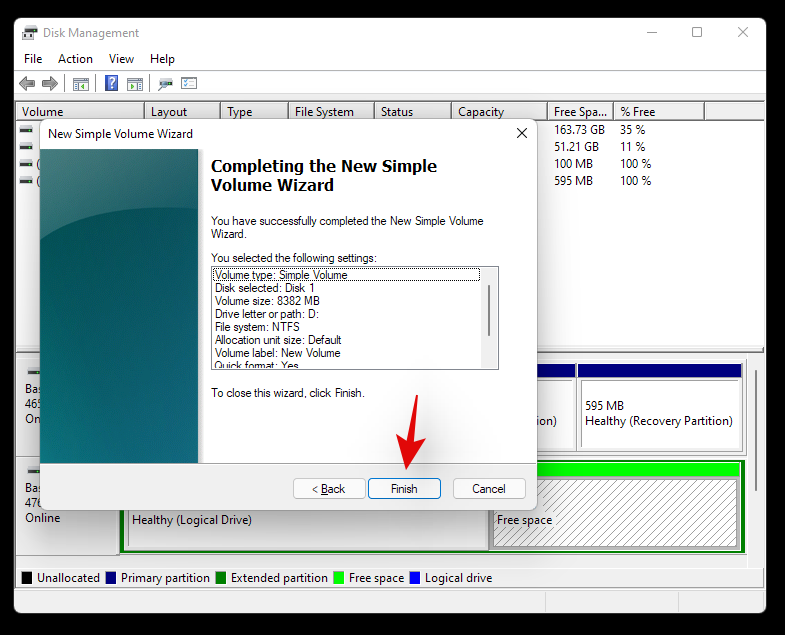
And that’s it! A new volume should now be created on the selected drive.
We hope this guide helped you easily format or wipe your drive in Windows 11 depending on your current needs and requirements. If you face any issues or have any questions for us, feel free to reach out to us using the comments section below.
Related:
I denne artikel vil vi guide dig til, hvordan du genvinder adgang til din harddisk, når den fejler. Lad os følge med!
En “0x80070024 media er skrivebeskyttet” fejl kan være en besvær, da den ikke rigtigt forklarer, hvad den handler om. Heldigvis kan du som regel frafalde et par attributter for at løse det.
Defragmentering af en PC er vital for dens velfærd, men ved du, hvordan du gør det manuelt? Defragmentering af en PC er vital for dens velfærd, men ved du, hvordan du gør det manuelt?
Hvis du opgraderer til en ny pc, forsøger du muligvis at genbruge harddisken fra din gamle pc. Hvis ikke, planlægger du måske at give den til et familiemedlem eller en ven. Men før du...
Kæmper du med knitrende lyd i Windows 11? Opdag dokumenterede løsninger på problemet med 48kHz vs. 44kHz, inklusive trinvise justeringer for at gendanne krystalklar lyd. Sig farvel til støj for altid!
Dyk ned i konfiguration af Windows 11 dvaleindstillinger via registreringsdatabasen for ultimativ strømstyring. Trin-for-trin-guide med tips til at optimere din pc.
Lær trin for trin, hvordan du opretter en GPT-bootbar USB-disk til Windows 11. Perfekt til rene installationer på moderne pc'er med UEFI-firmware. Kom i gang med pålidelige værktøjer og tips til succes.
Har du problemer med ERR_SSL_PROTOCOL_ERROR i Windows 11? Opdag gennemprøvede trin til at løse dette frustrerende SSL-problem i Chrome, Edge og andre browsere. Kom hurtigt tilbage til sikker browsing!
Opdag enkle trin til at tilpasse indstillinger for strømsparetilstand i Windows 11. Optimer batterilevetiden, øg produktiviteten og spar energi ubesværet med vores ekspertguide.
Opdag enkle trin til at ændre din standardbrowser i Windows 11. Tilpas din browseroplevelse nemt og øg produktiviteten med vores detaljerede, opdaterede guide.
Har du problemer med fejlen "Windows 11 IP-konfiguration er ikke gyldig"? Opdag gennemprøvede trinvise løsninger, der hurtigt og nemt kan gendanne din internetforbindelse. Ingen teknisk ekspertise nødvendig!
Opdag etiske måder at omgå Windows 11-aktivering til testformål. Lær trinvise metoder, tips og bedste praksisser til at udforske funktioner uden binding. Perfekt til udviklere og IT-professionelle.
Kæmper du med irriterende baggrundsstøj fra mikrofonen på Windows 11? Opdag gennemprøvede trinvise løsninger til at gendanne krystalklar lyd til opkald, optagelser og meget mere. Sig farvel til distraktioner og goddag til problemfri kommunikation.
Har du problemer med intet signal eller 60FPS på dit Windows 11-optagelseskort? Opdag gennemprøvede trinvise løsninger til at gendanne problemfri streaming og optagelse. Få din opsætning til at fungere fejlfrit i dag!
